You are not logged in.
- Topics: Active | Unanswered
#26 Re: News » Bizarrerie chez Crassula perforata ssp. kougaensis » 2014-12-04 16:10:02
Tom, that is the first time I see something like that - really surprising!
Would be interesting to know how or why something like that happens...
#27 Re: News » Kalanchoe and others in my collection » 2014-12-04 16:01:07
Paul, it seems that our clones also differ significantly in coloration. I initially thought that age might account for this difference, but then I checked my young var. rhombopilosas derived from leaves - they have the same coloration as my mature plant.
Kalanchoesammler wrote:Wow that K. rhombopilosa looks crazy
I agree with you.
The plant received probably a lot of sun, is it the case, Ronen ?
It receives a lot of sun during the summer, but for the past few months it has been shaded by a tree so even when it's sunny, it gets around 2 hours of direct sun... I don't know why my rhombopilosas become so sharp looking - the same happened to my K. rhombopilosa var. viridifolia soon after I got it. Leaves of younger plants are less crazy in shape, however.
#28 Re: News » Kalanchoe and others in my collection » 2014-12-03 19:02:59
Here are some additional photos of clones that prepare to flower:
The regular K. blossfeldiana ("Tom Thumb"):
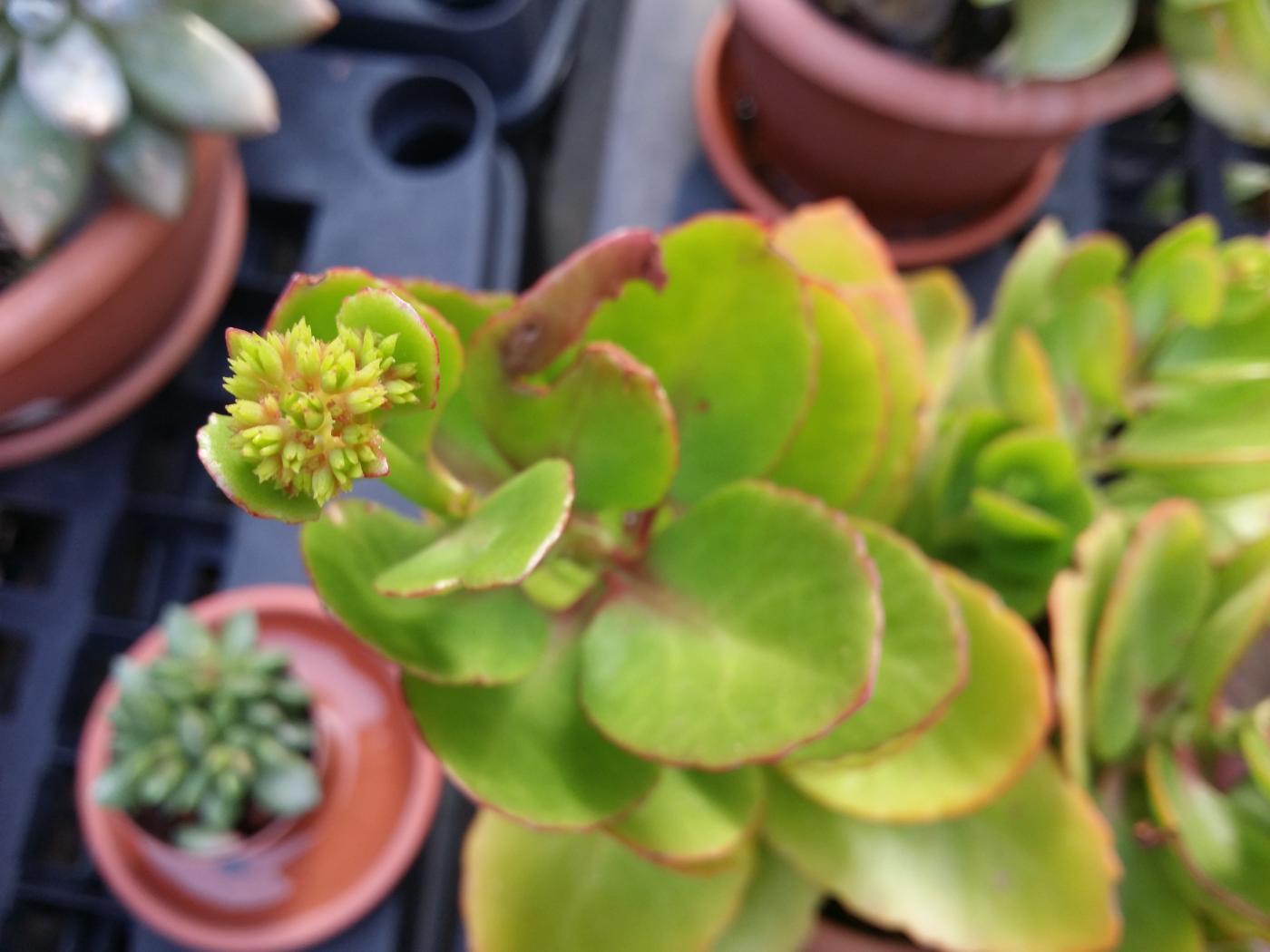
K. waldheimii, apparently considered a delicacy by snails...
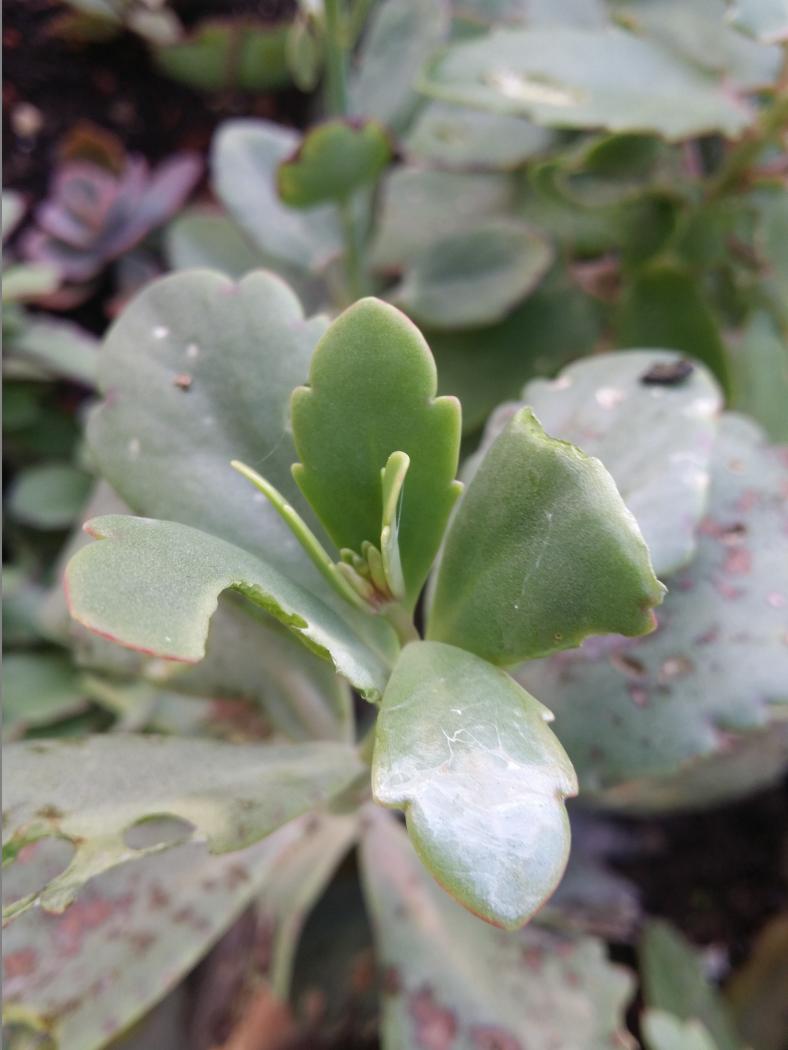
Yet another clone of K. fedtschenkoi, somewhat close to K. waldheimii in size, leaf form, and stature.
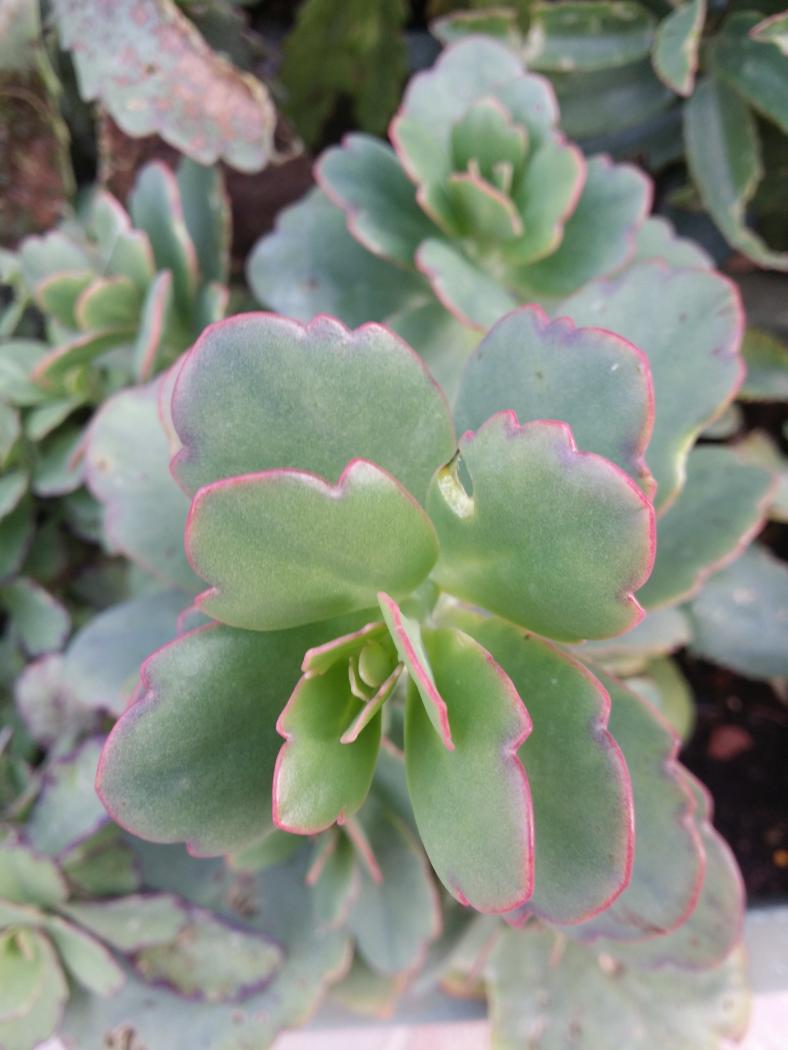
K. rhombopilosa var. rhombopilosa:
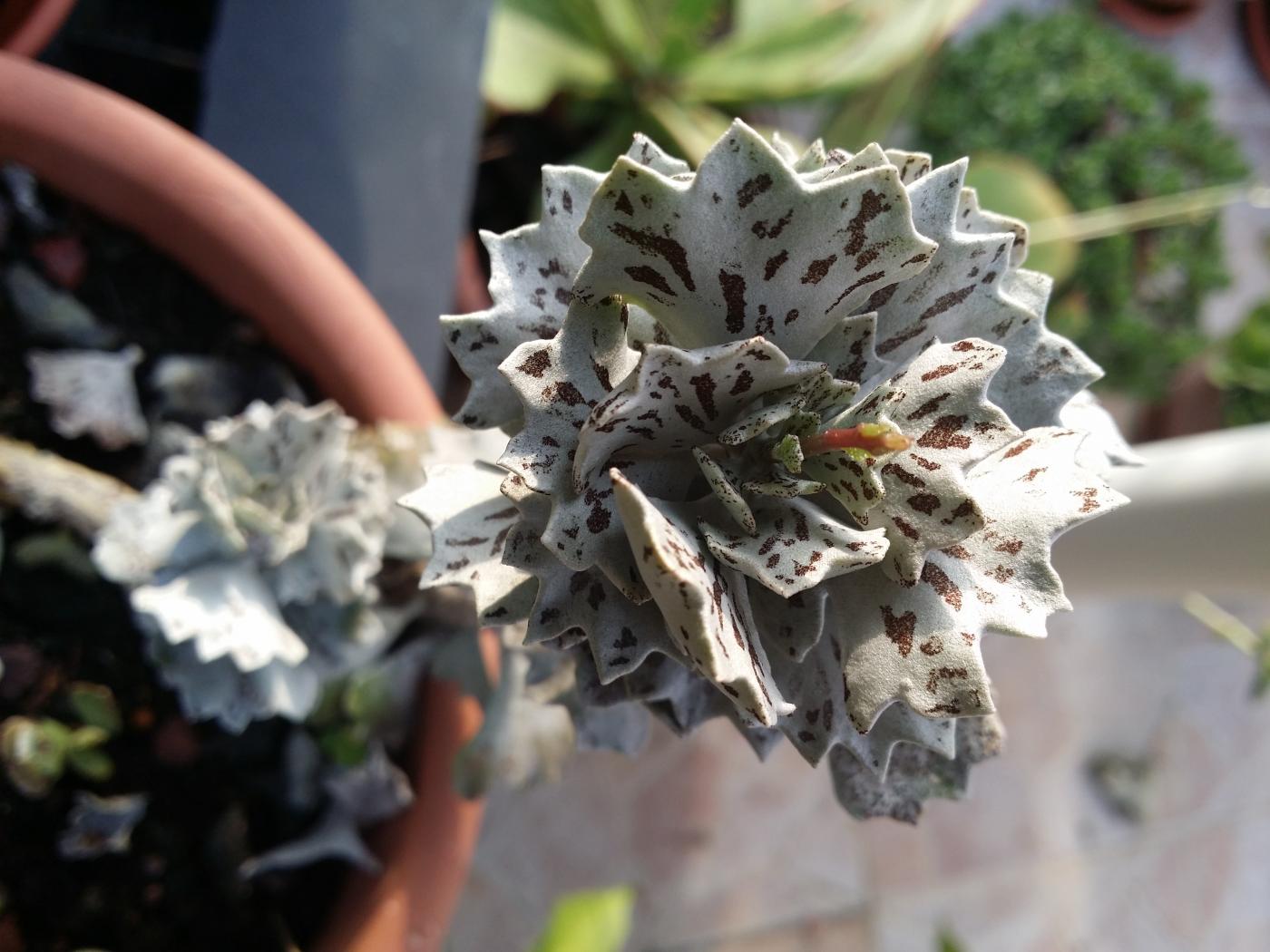
K. lateritia "var. zimbabwensis":
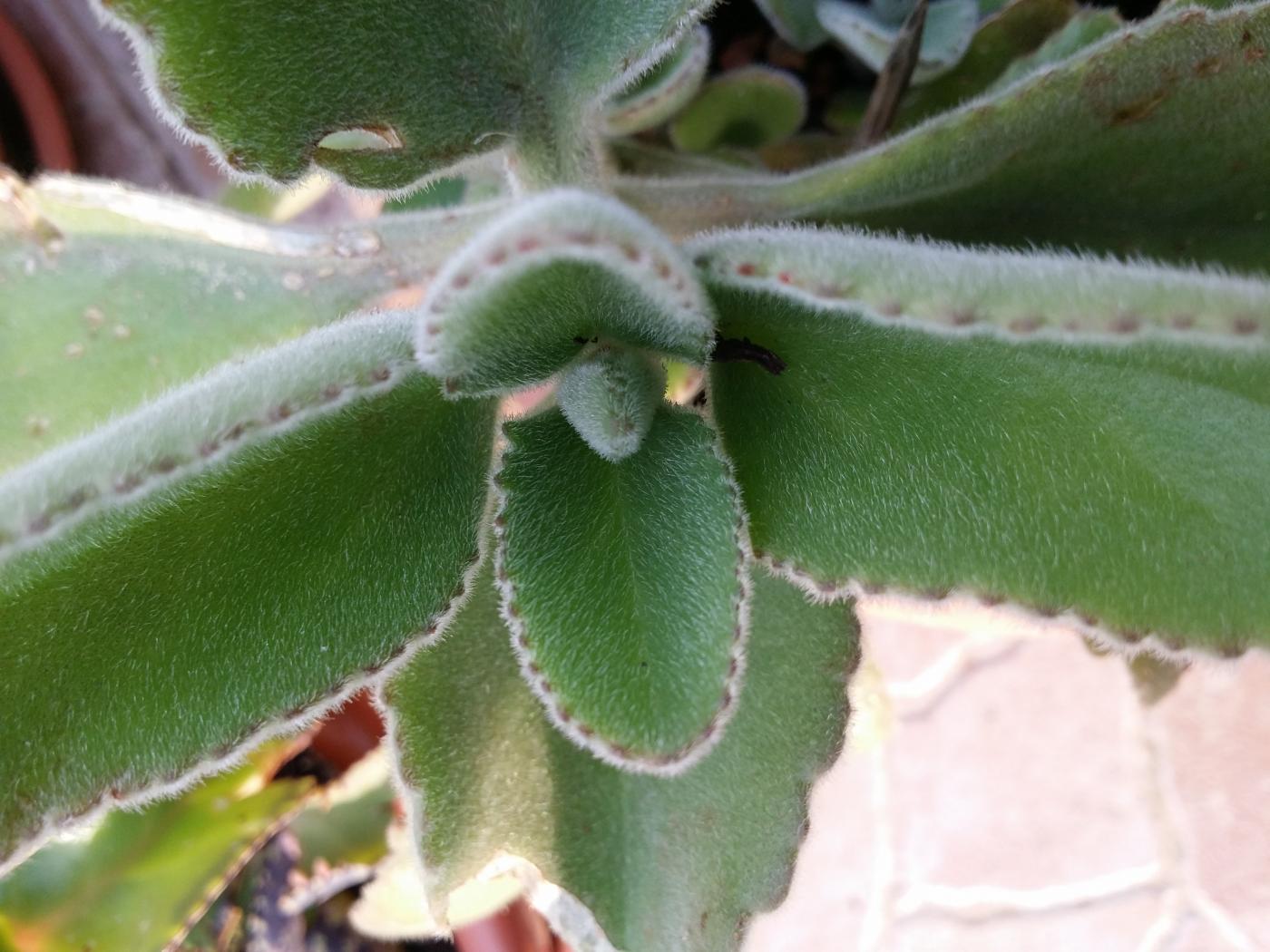
K. miniata:
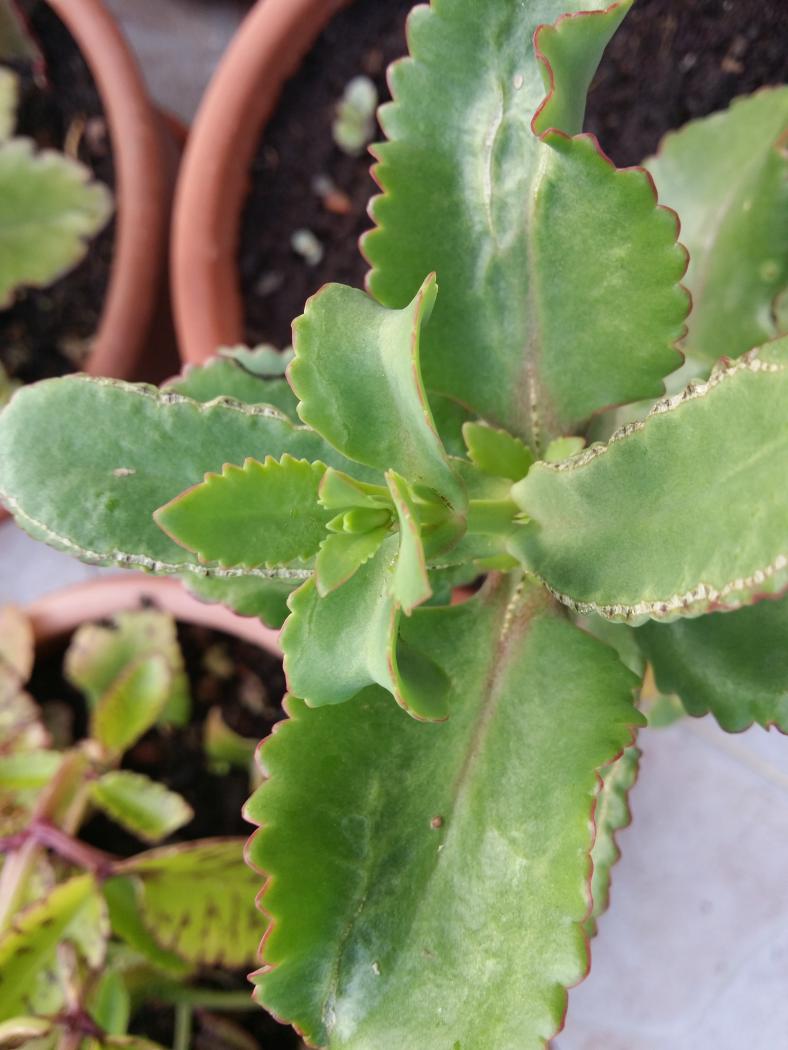
Another clone of K. miniata, very young:
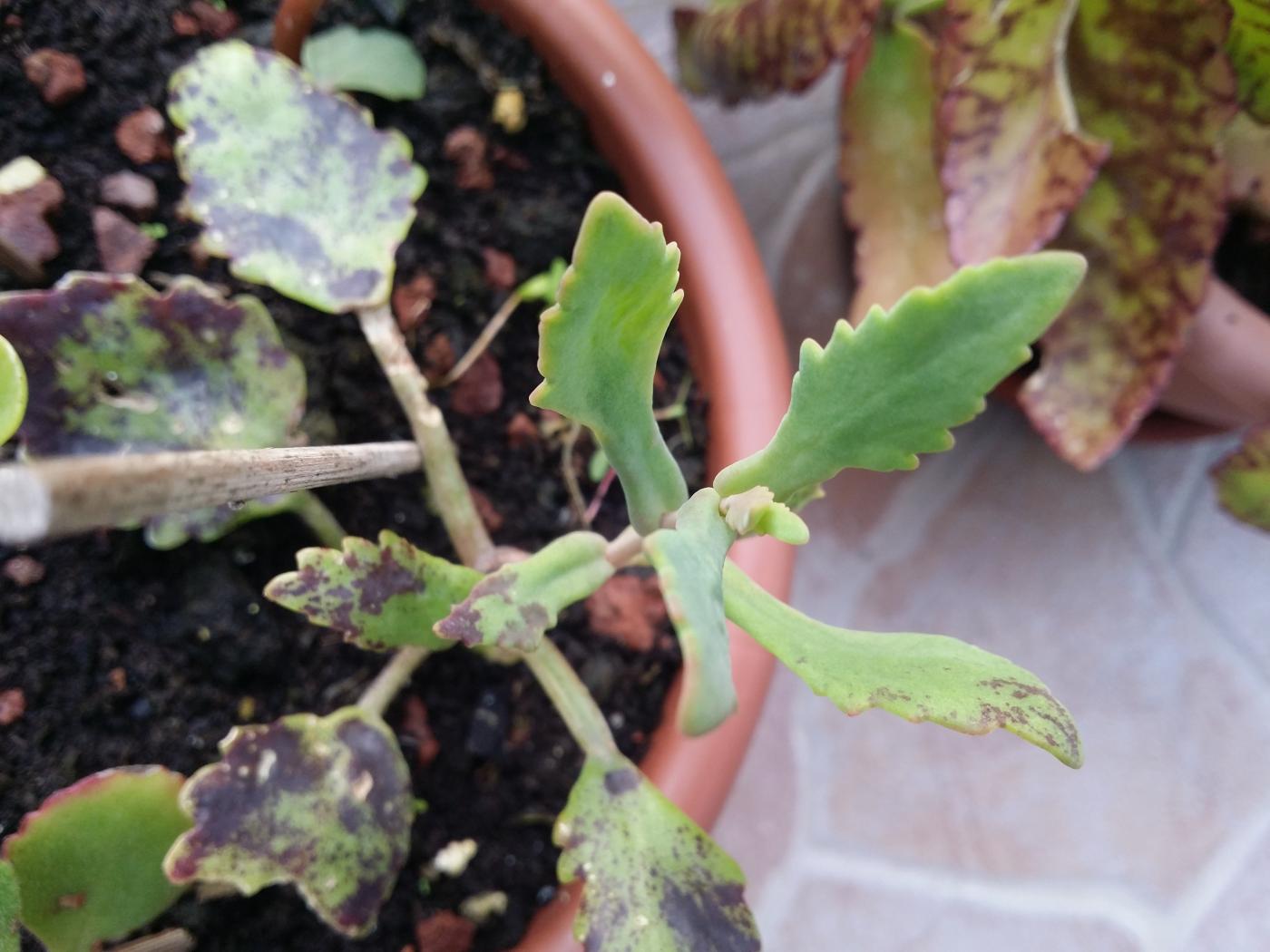
#29 Re: Präsentation » Kalanchoe - Beginn der Blüte » 2014-12-03 18:38:36
Hi Paul,
Welcome to the forum!
I'm really glad to find another Kalanchoe-oriented collector here.
Very interesting clones of K. synsepala! I hope we will see more of your collection.
Ronen
#30 Re: Identification » Kalanchoe ID » 2014-11-30 16:35:19
I just found this old post, so don't know if my input might still be helpful... I'm pretty sure that this is a young K. pubescens - the stem is thick, and the leaves are fleshy, petiolate, auriculate and amplexicaul. I can't think of any other species that (even sometimes) has this combination.
About leaves that smell on a Kalanchoe I can only think of K. aromatica, which unfortunately I've never seen in person.
#31 Re: News » Kalanchoe and others in my collection » 2014-11-30 07:04:24
It is still not too late for that to happen... I'll keep you posted!
#32 Re: News » Kalanchoe and others in my collection » 2014-11-29 14:47:23
Generally it's true, but this is why I was relatively surprised - based on the description, I didn't expect it...
Below are two photos of an unidentified (probably mainland-African) Kalanchoe. It's 3 months old so no flowers yet, leaves are around 8 cm long. It reminds me of glaucescens, grandiflora, prittwitzii, but nothing seems to fit 100%... Any suspects?
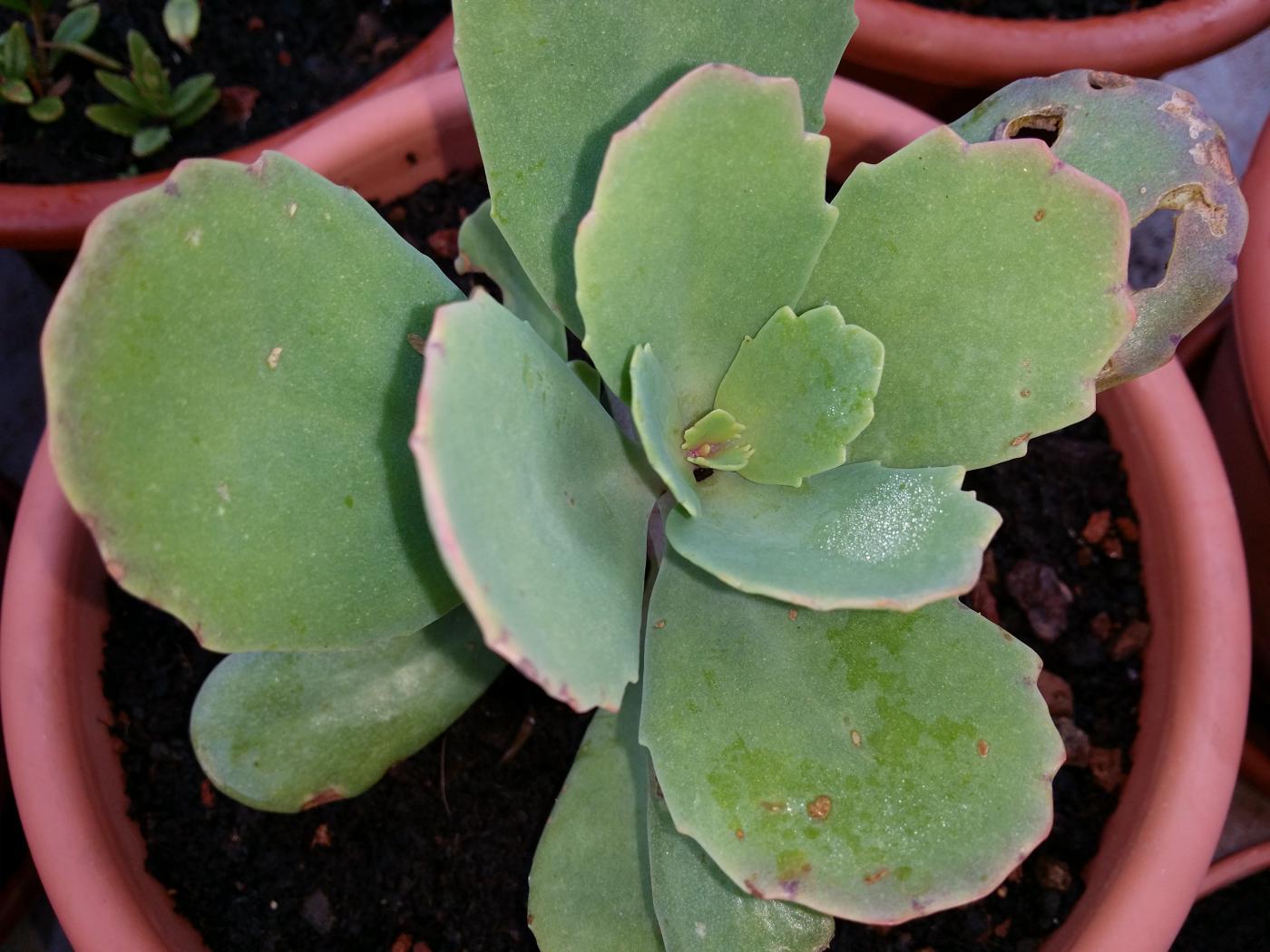
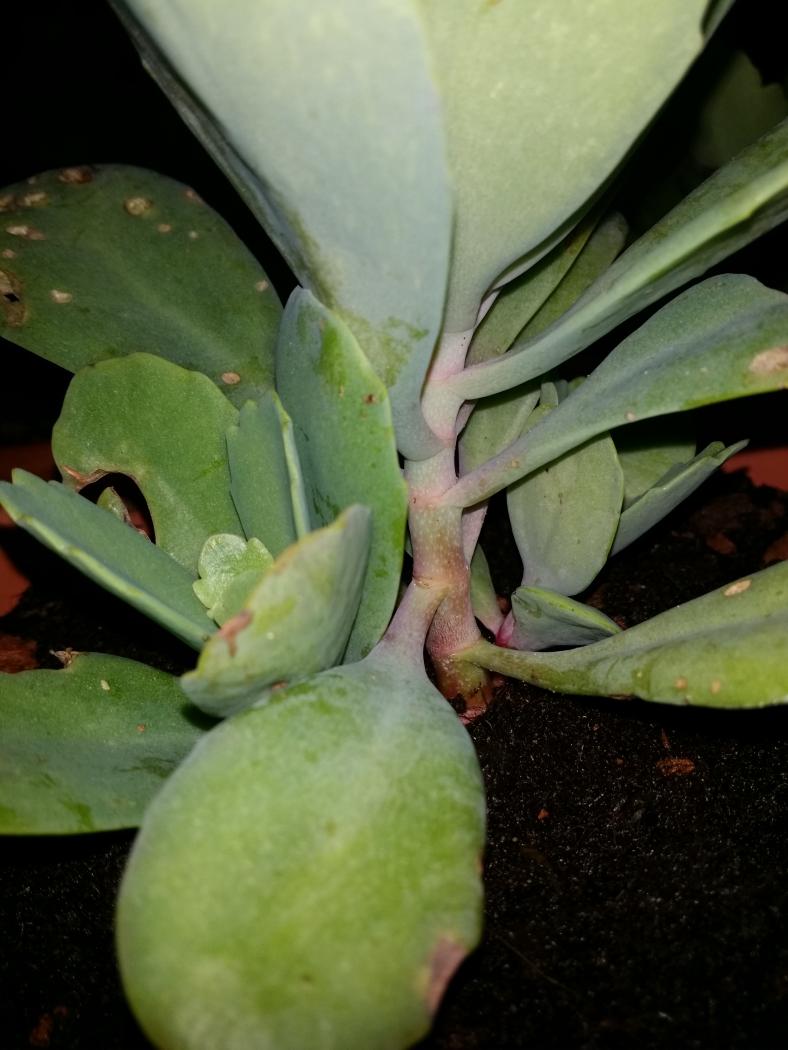
#33 Re: News » Kalanchoe and others in my collection » 2014-11-27 16:24:33
Somewhere Descoings has explained that some plants never produce bulbils as long as the leaves are attached to the plant, but once they are lying on the ground, the do not hesitate to grow plantlets on their margins.
Isn't this also true for fedtschenkoi, marnieriana, serrata, tenuiflora, most laxiflora, some rosei, some waldheimii, (the whole "Proliferae" clade), and so on? From the translation it seems that Descoings used that trait ("total absence of bulbils") to distinguish from members of the fedtschenkoi-clade ("Suffutescentes") and diagremontiana-clade ("Bulbilliferae") and to link peltigera to more basal Bryos like K. peltata - in which case the statement is not correct OR peltigera must not be able to produce margin bulbils at all (which is apparently not true).
#34 Re: News » Kalanchoe and others in my collection » 2014-11-25 10:48:31
Thank you, Margrit! Some good things were caused by the hail, too - for example a surprise I've found among the wreckage from K. peltigera. I assumed it can produce plantlets like that, but seen no evidence before. Descoings even wrote "total absence of bulbils" as translated from the description...
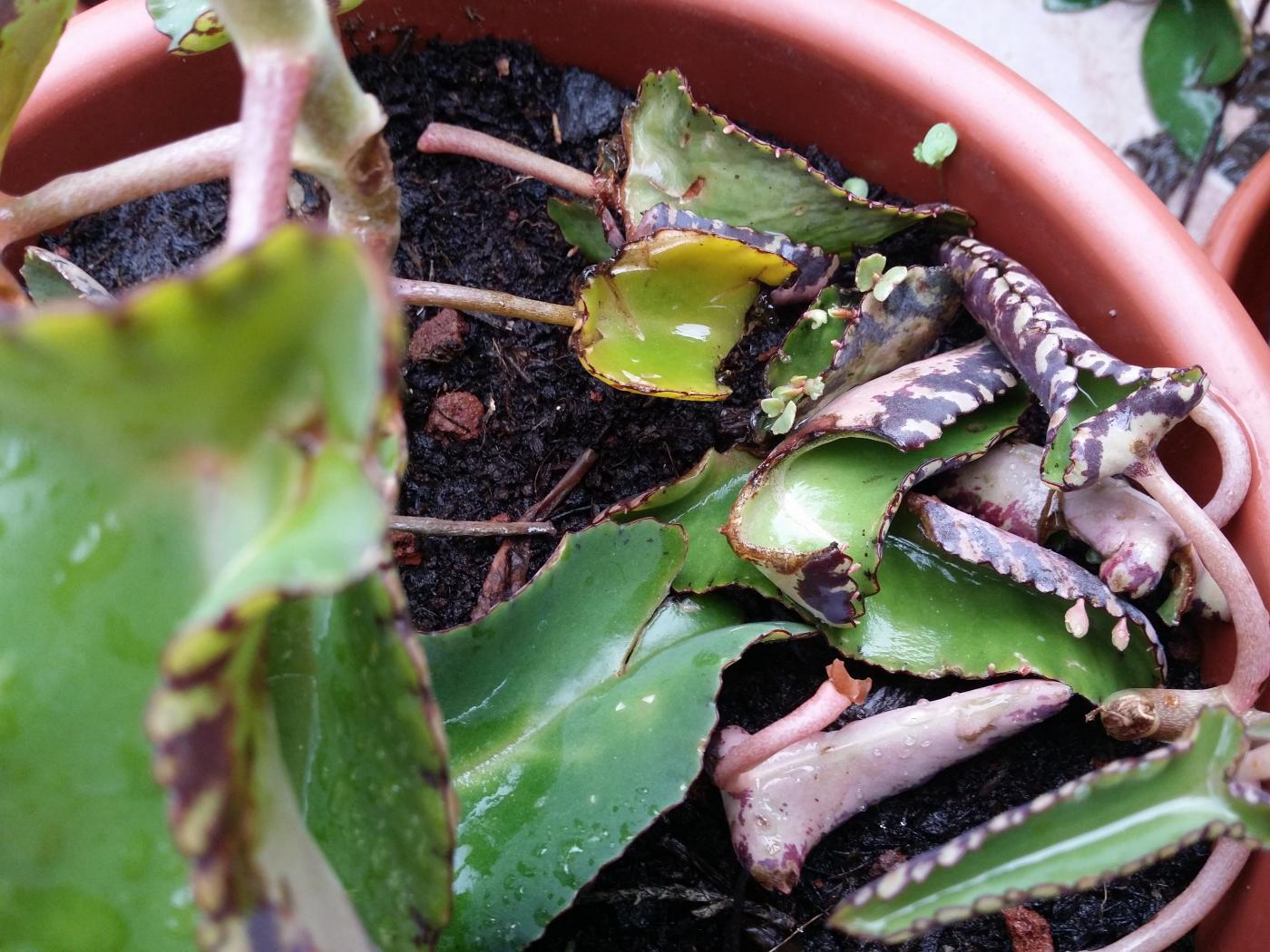
Here are two beauverdii that will soon flower (typical juellii, and one of the broad leaf forms):
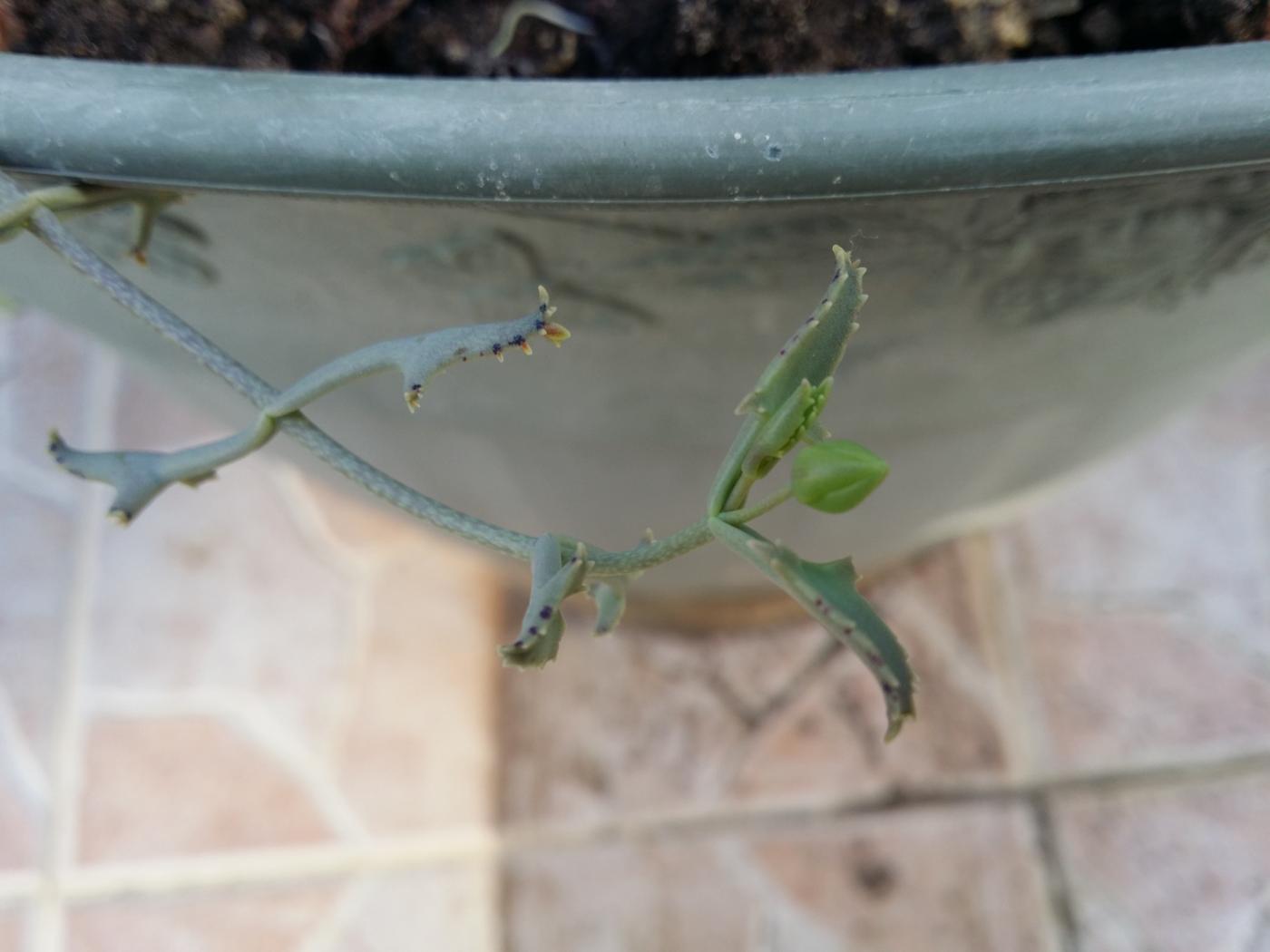
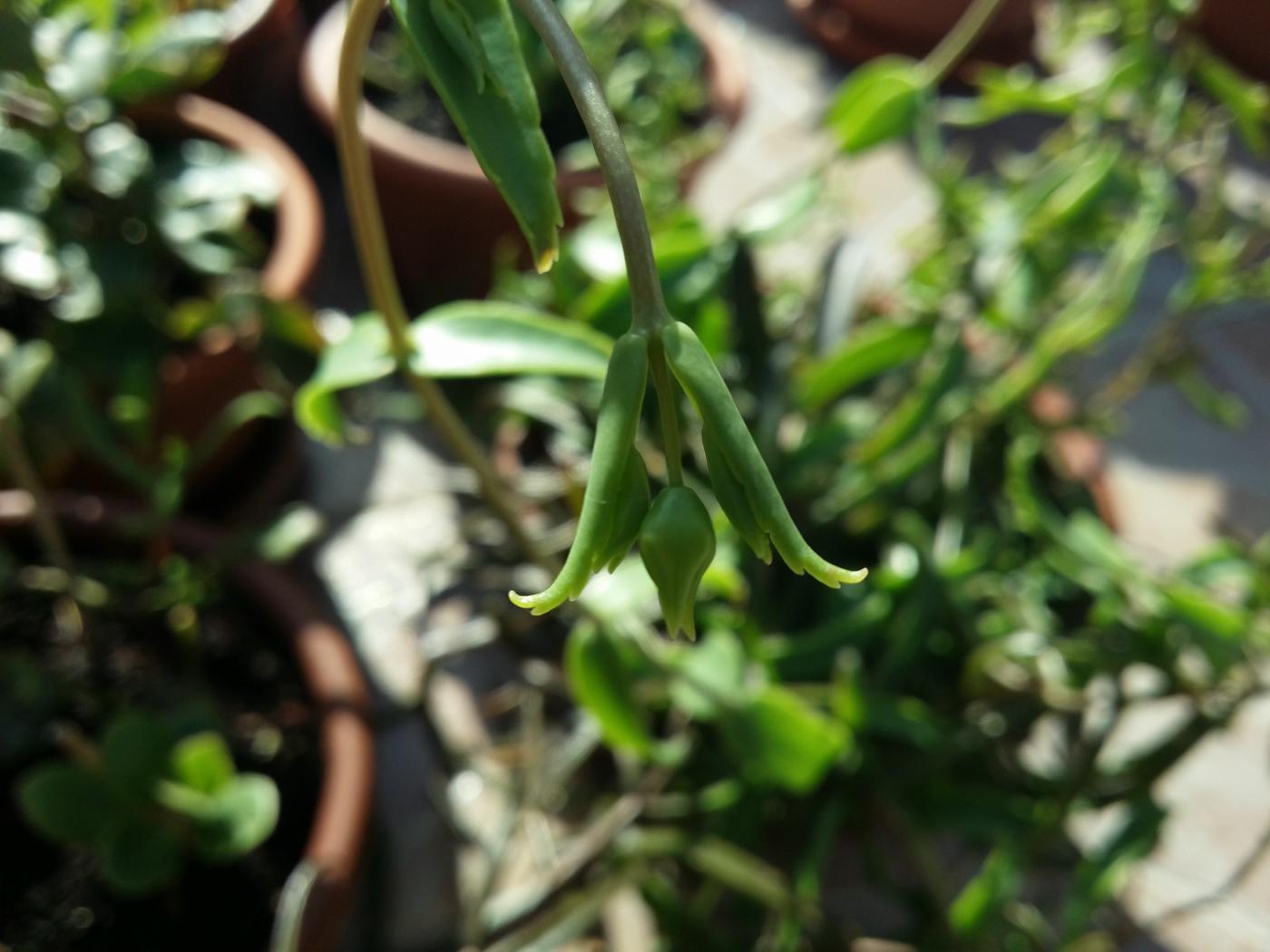
The typical K. diagremontiana:
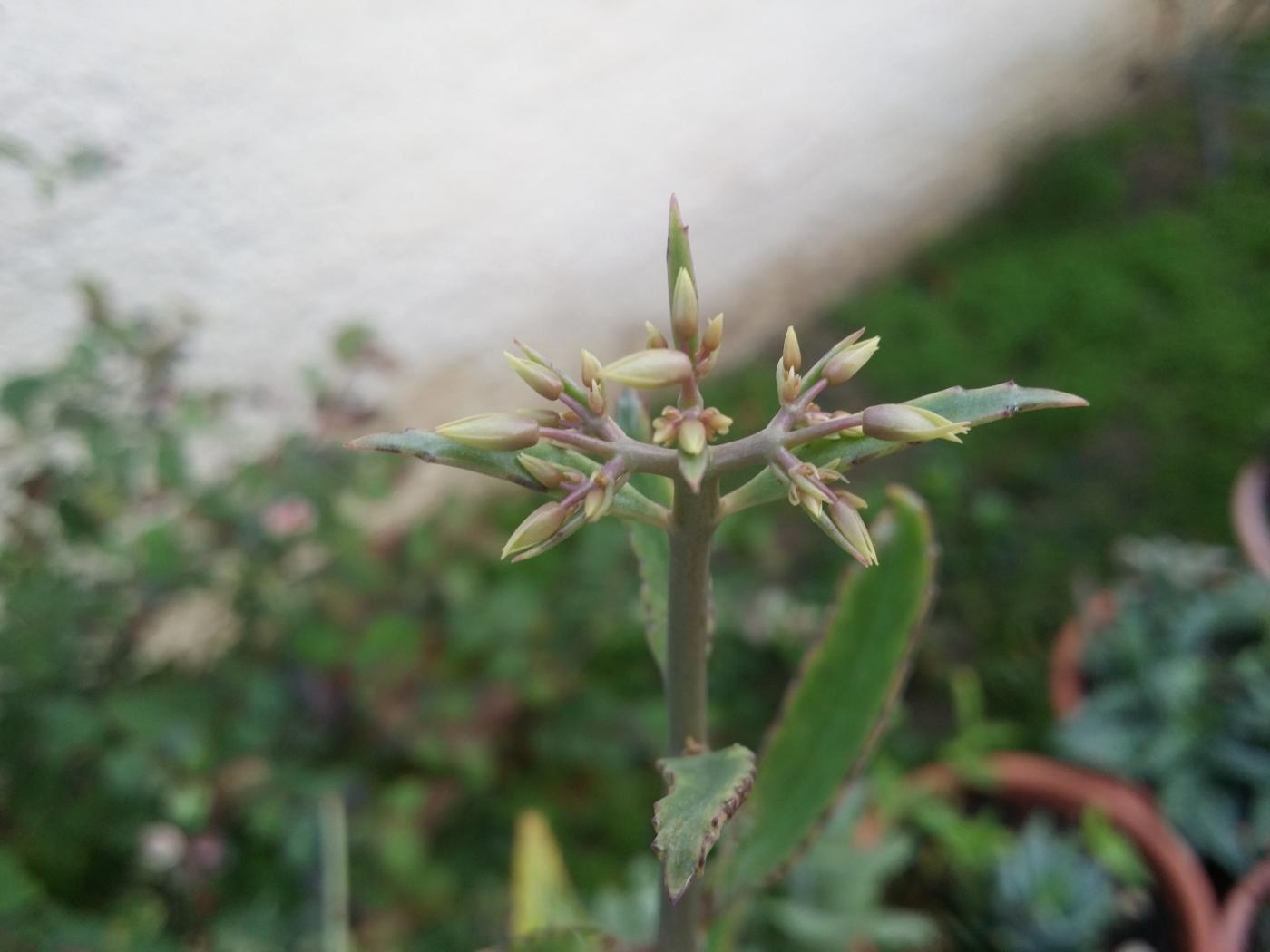
K. 'Fang':
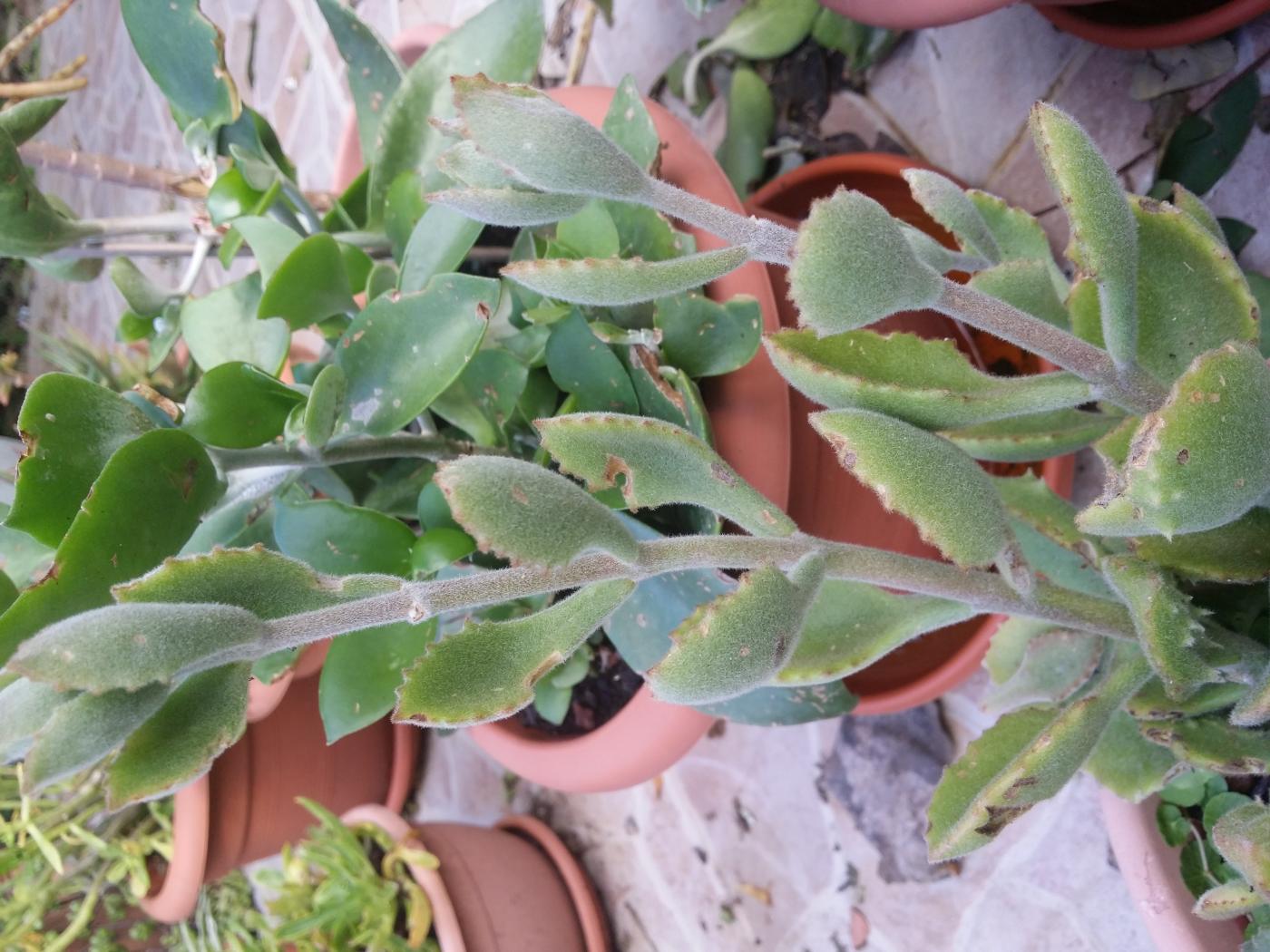
And an example of the hail damage on one of the K. × flaurantia: ![]()
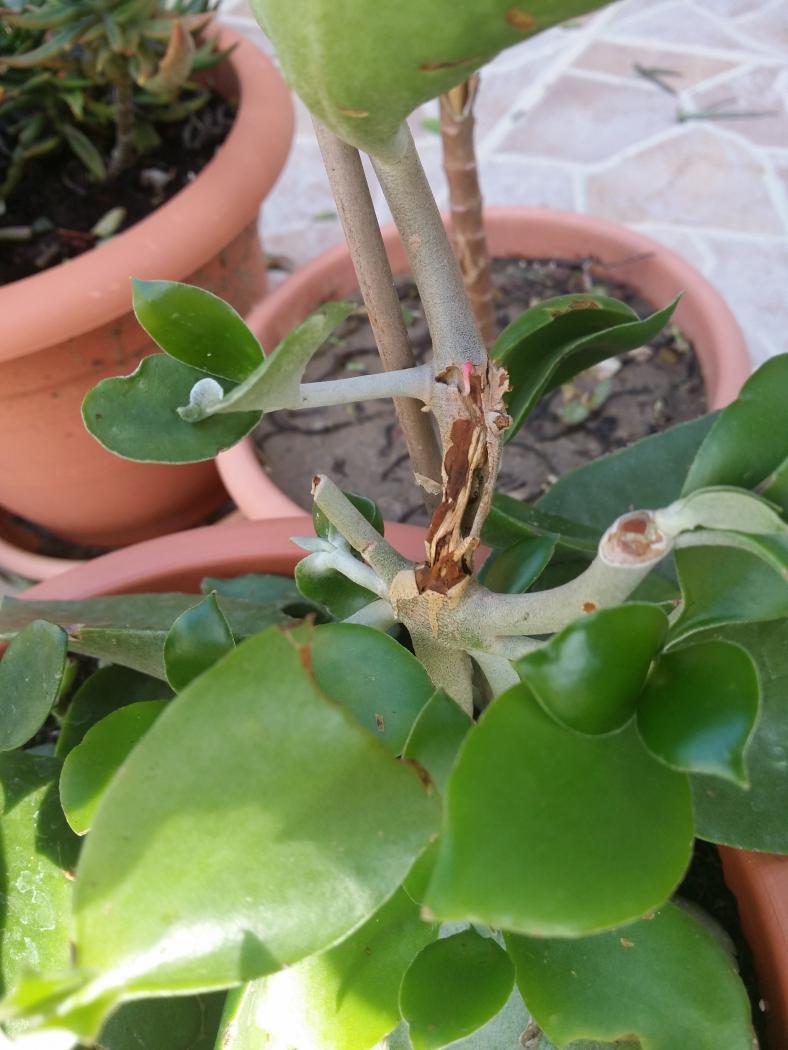
#35 Re: News » Kalanchoe and others in my collection » 2014-11-22 14:49:10
Ronen wrote:Four different clones of fedtschenkoi
The fourth has beautiful colors.
Thanks, I also like this color gradient. This form was the regular fedtschenkoi 'Marginata' 3-4 years ago, but then some branches started losing the variegation, so I separated them and now the "variegation" in this pot is gradual with pink tan...
Here are some additional photos:
Richaud's sp. Pic Saint Louis which is very similar to tenuiflora and could be a hybrid (damaged a lot by hail, but in buds):
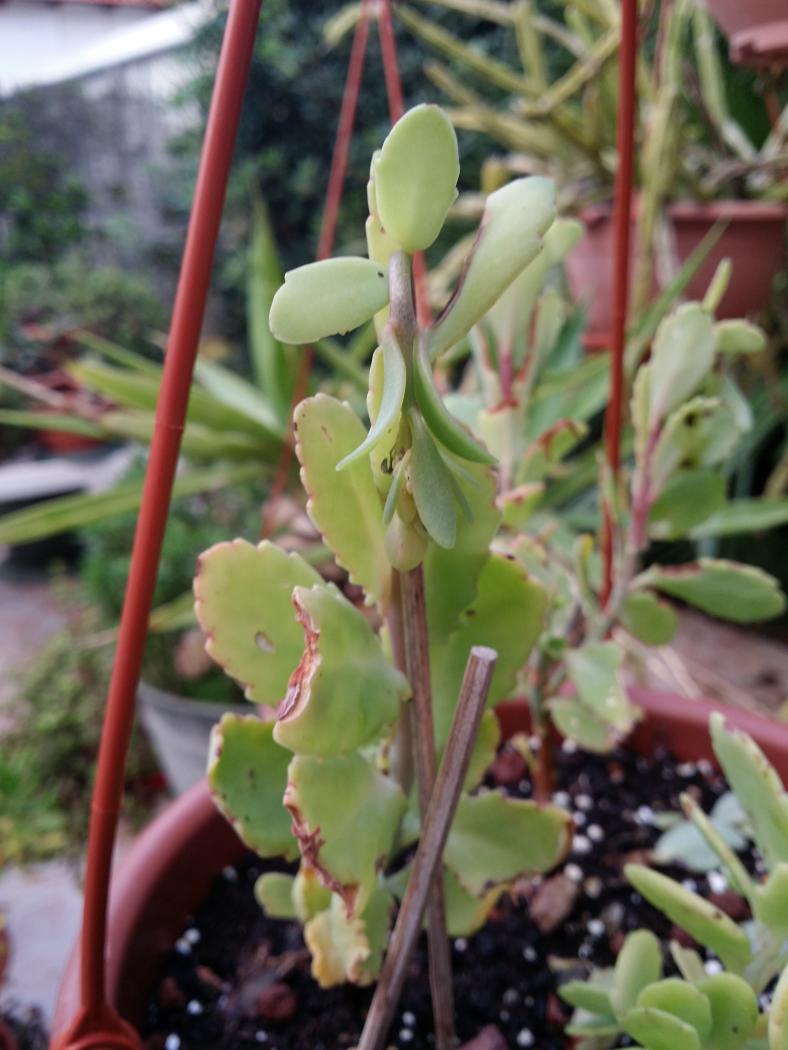
One of many "K. blossfeldiana", 'Marginata':
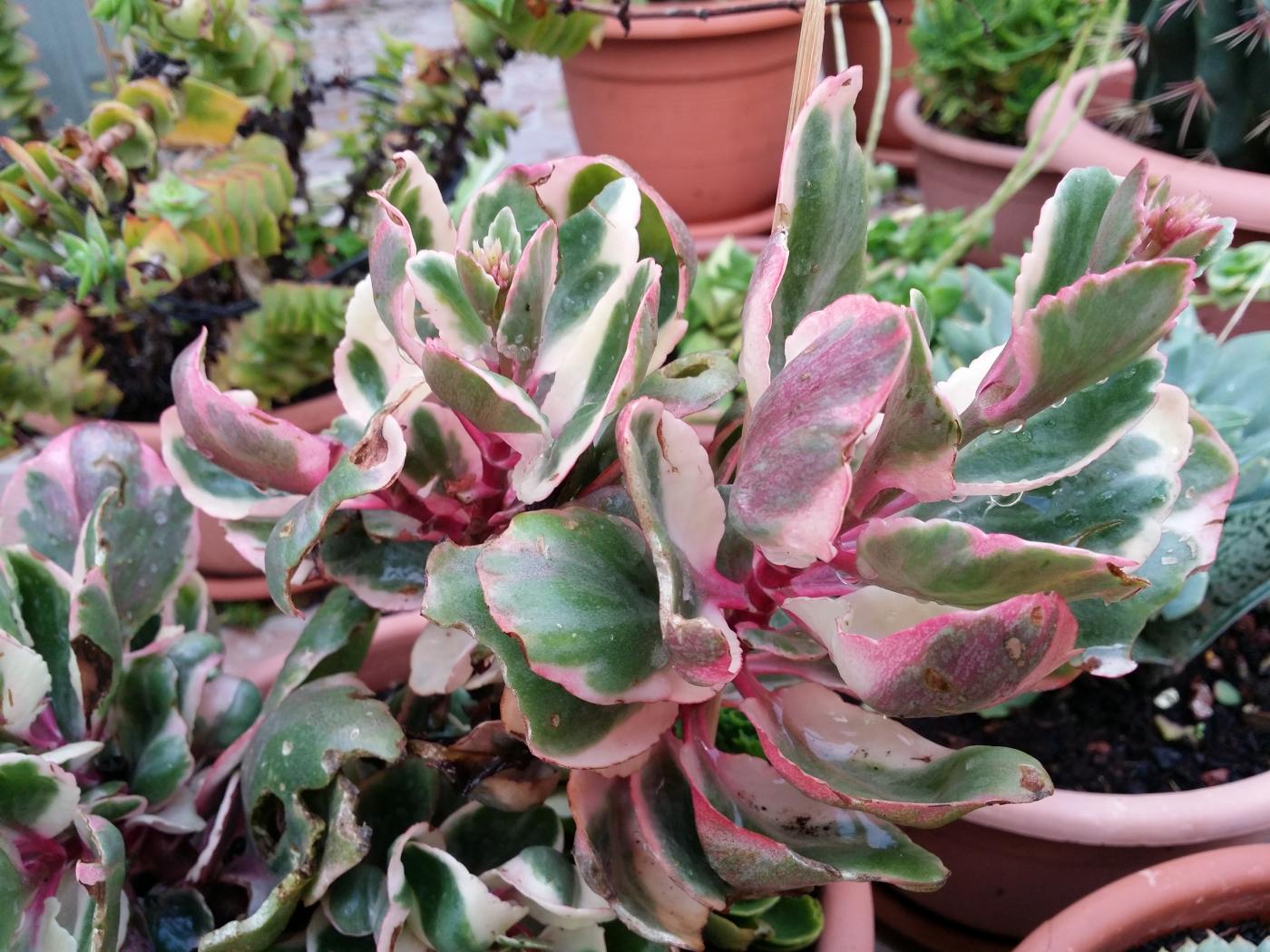
K. rosei ssp./var. serratifolia "var. seyrigi":
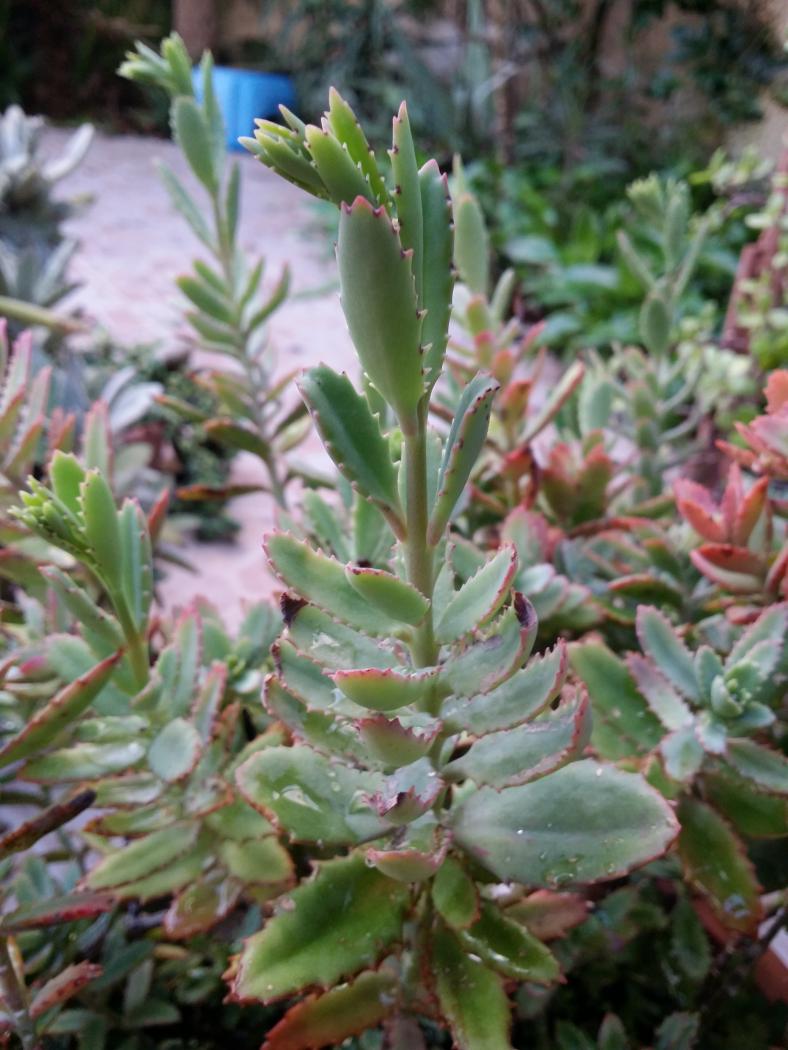
K. crenata:
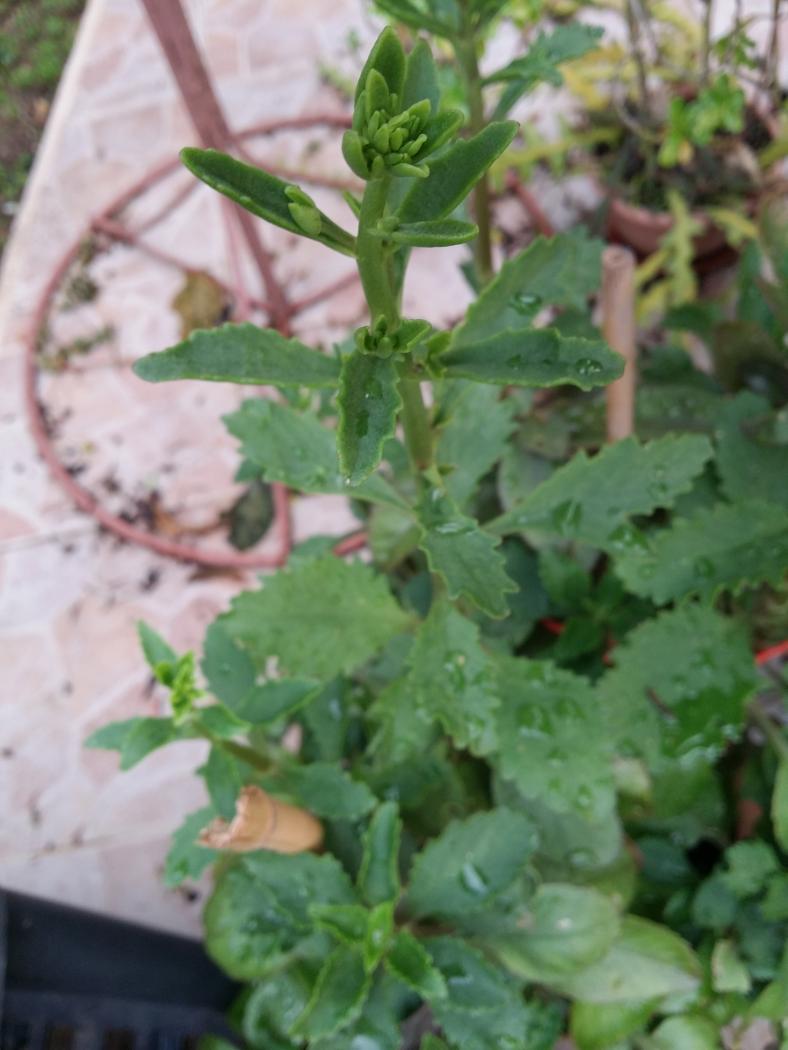
A 3 year old 2 meter long K. × houghtonii 'Jaws of Life":
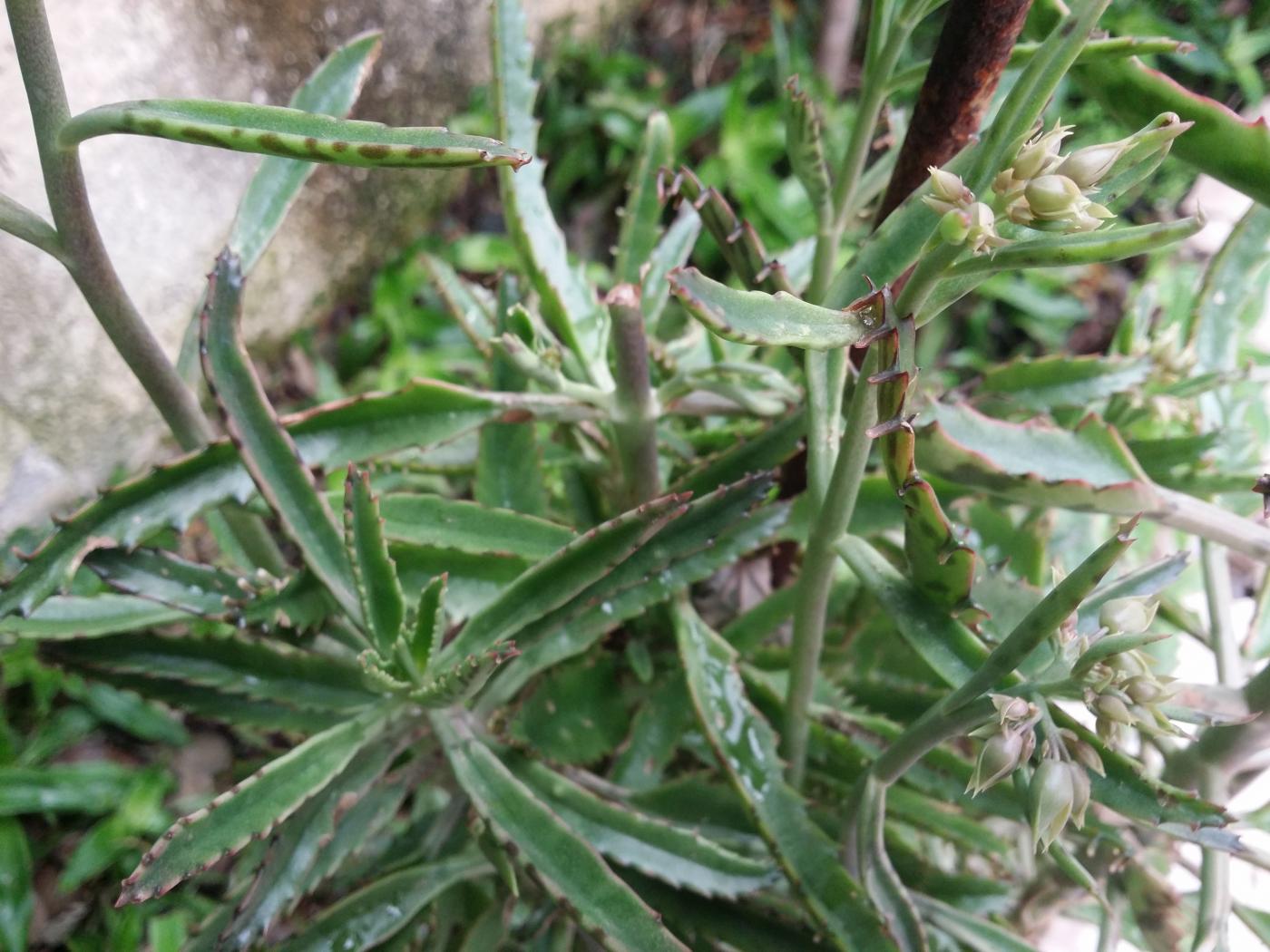
Crassula multicava ssp. multicava, the Kalanchoe mimic:
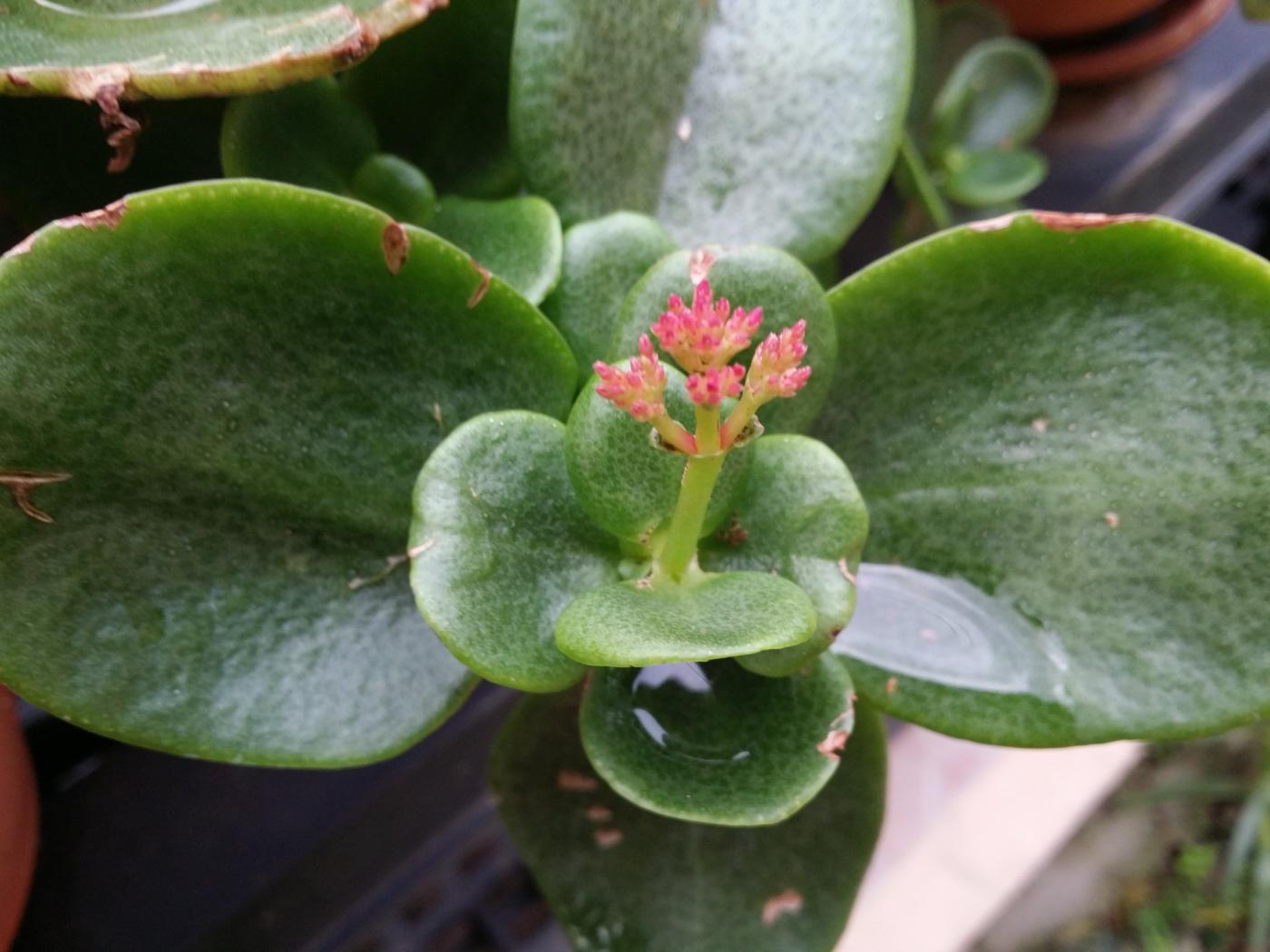
#36 Re: News » Kalanchoe and others in my collection » 2014-11-21 21:55:52
Thank you both!
Here are some photos of other Kalanchoe getting ready to flower -
Four different clones of fedtschenkoi (have a few more):
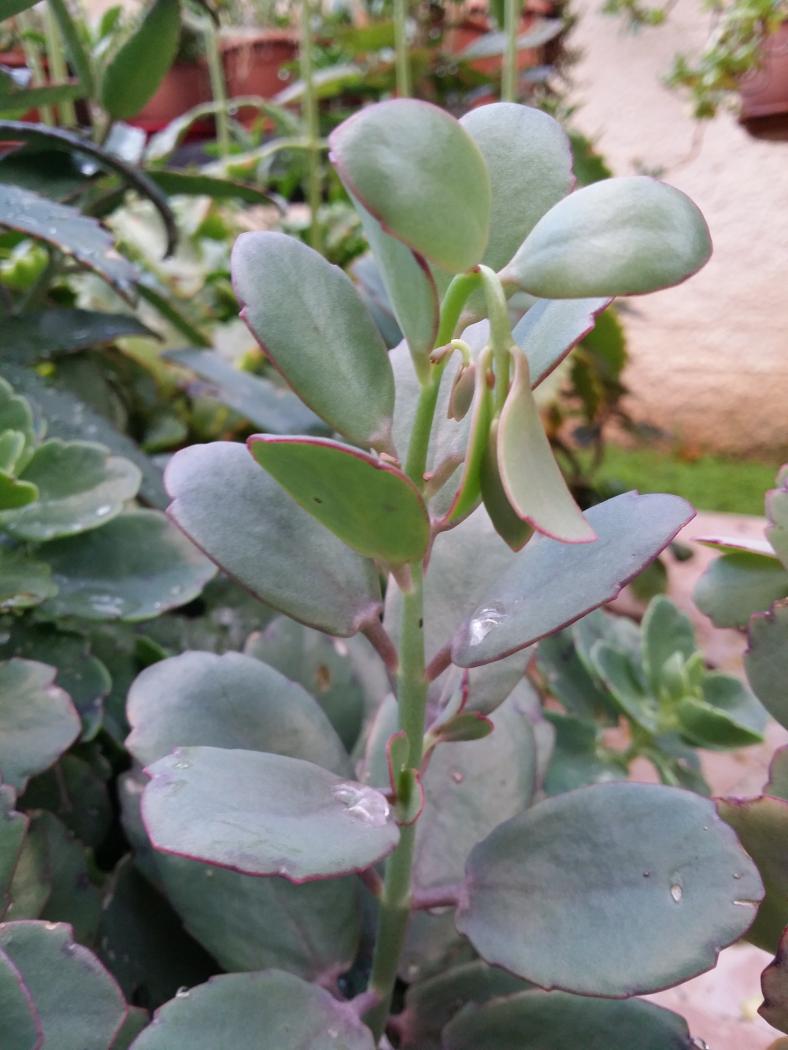
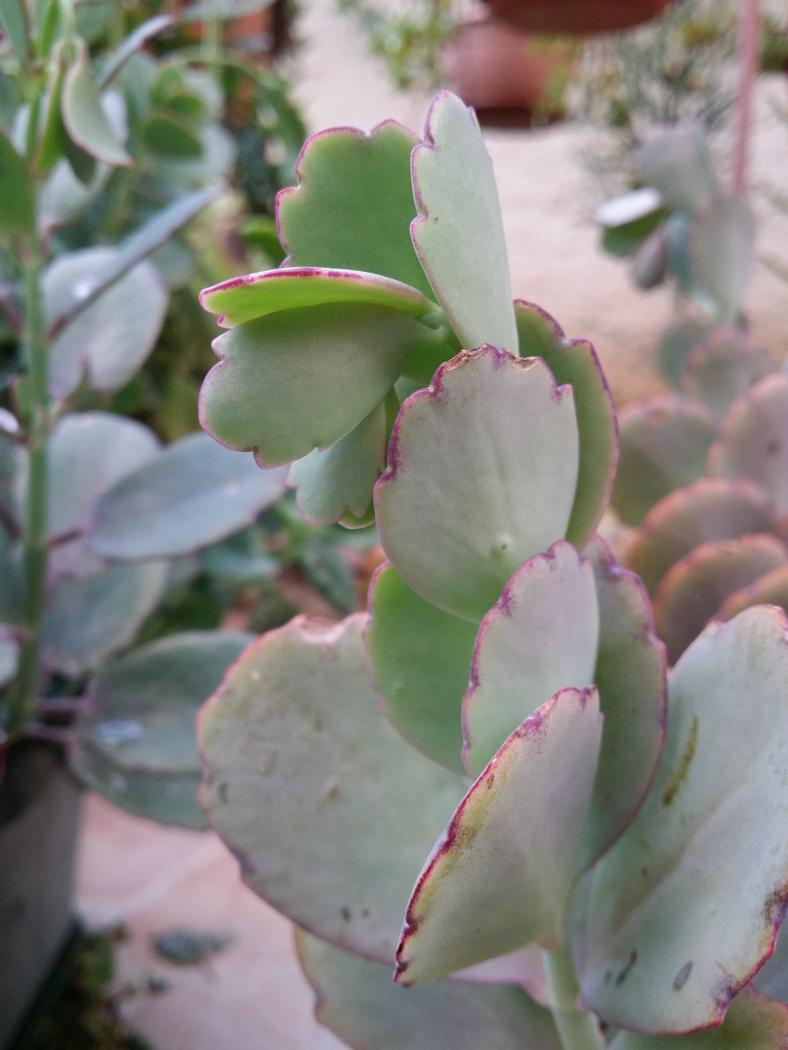
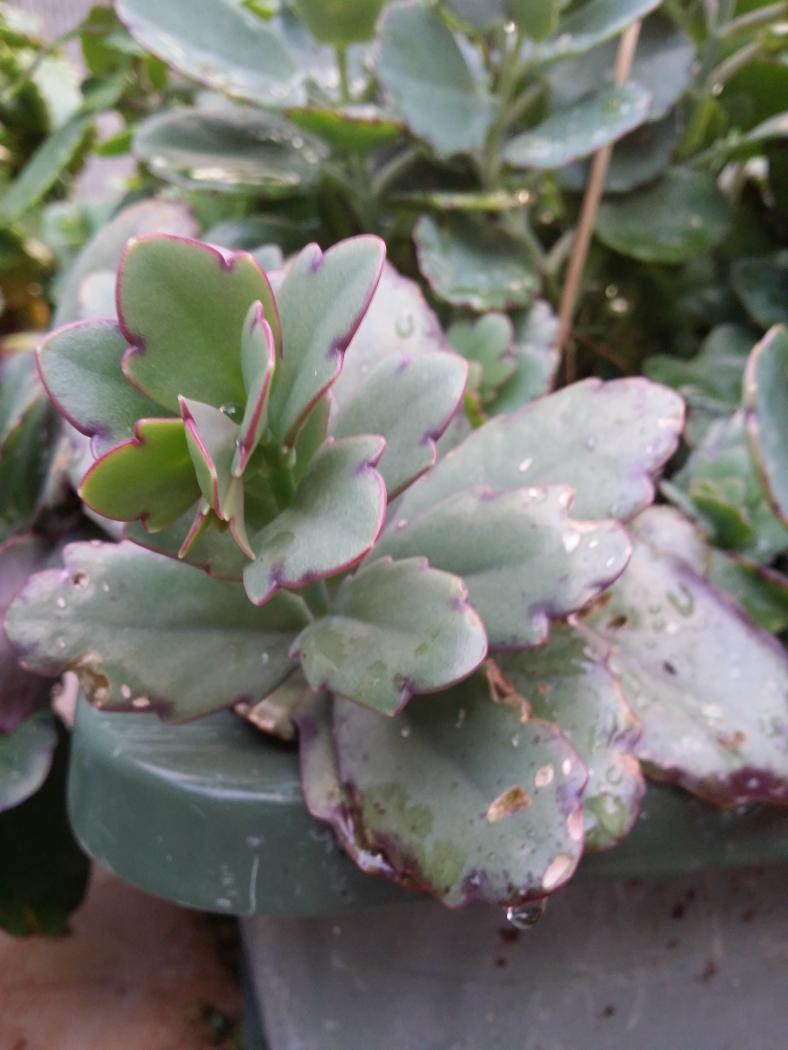
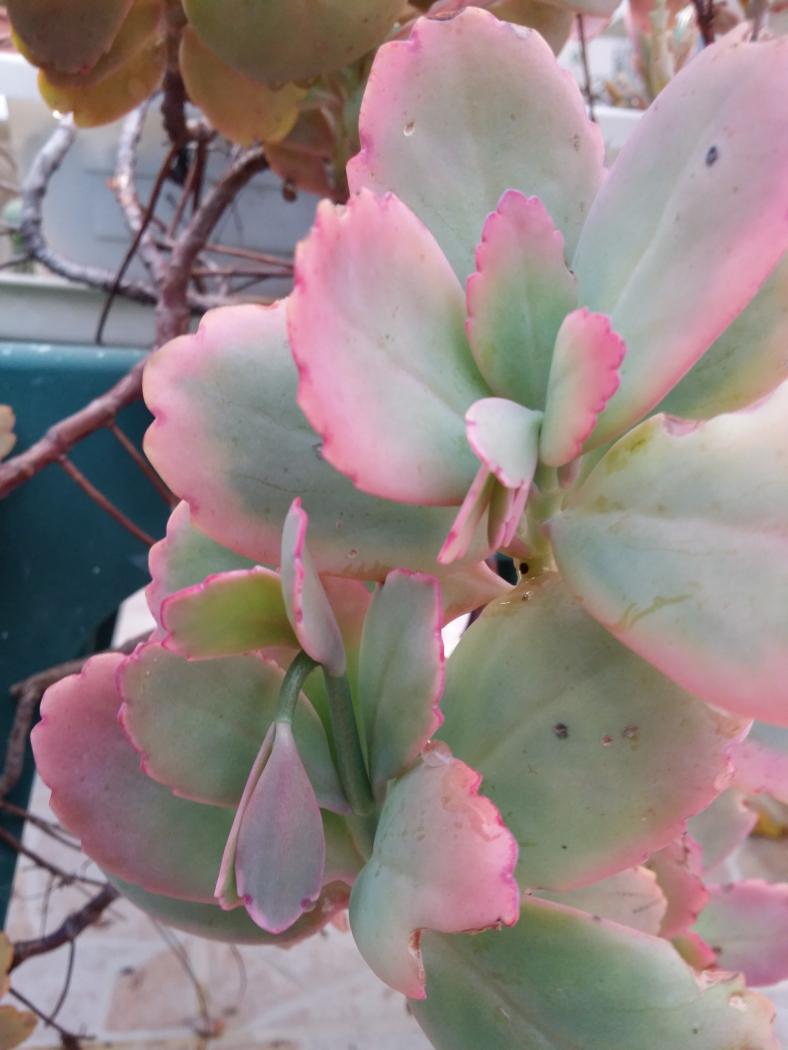
K. laciniata, possibly the form named 'African Queen'?
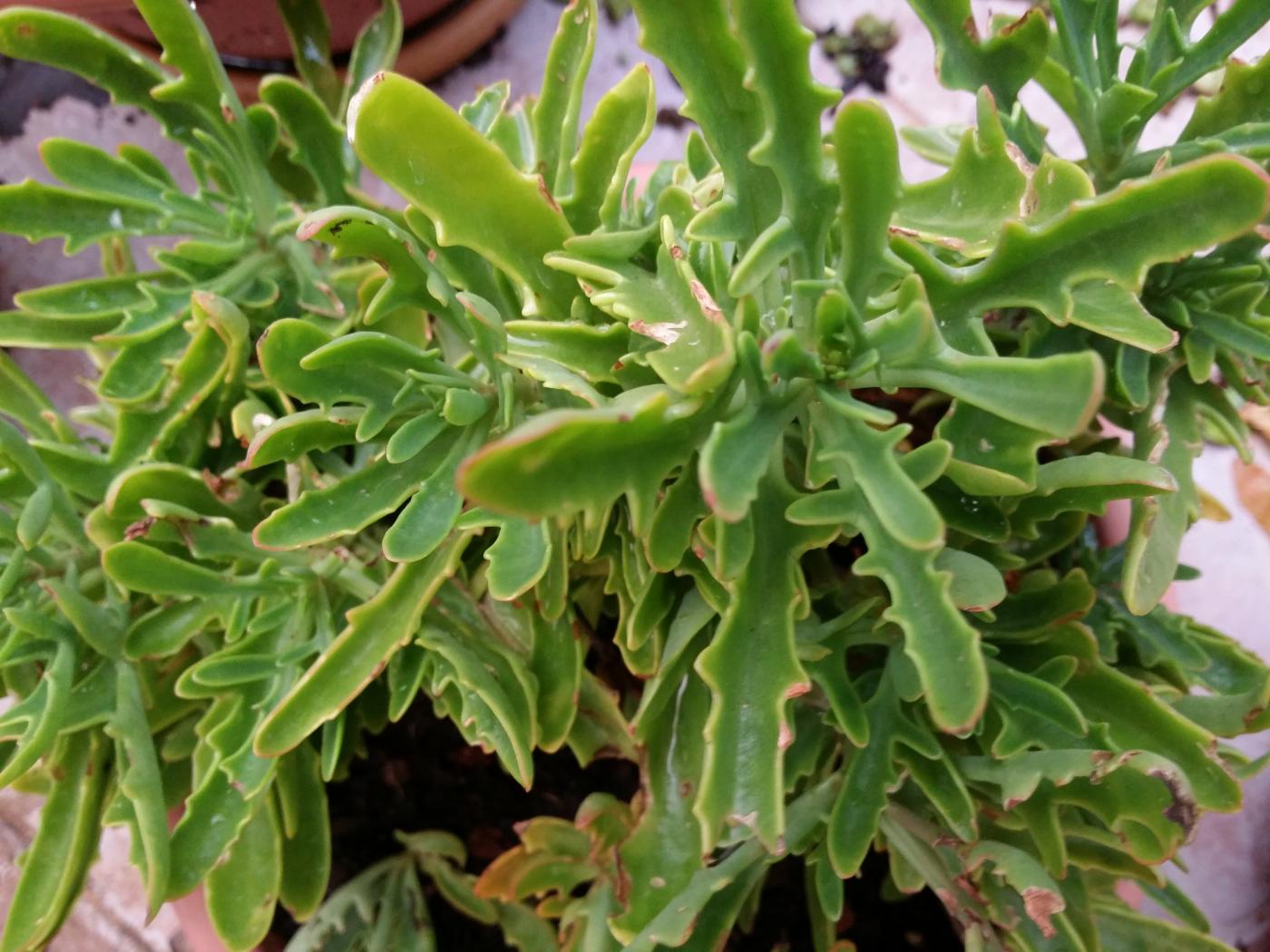
K. "lugardii" (a second prittwitzii):
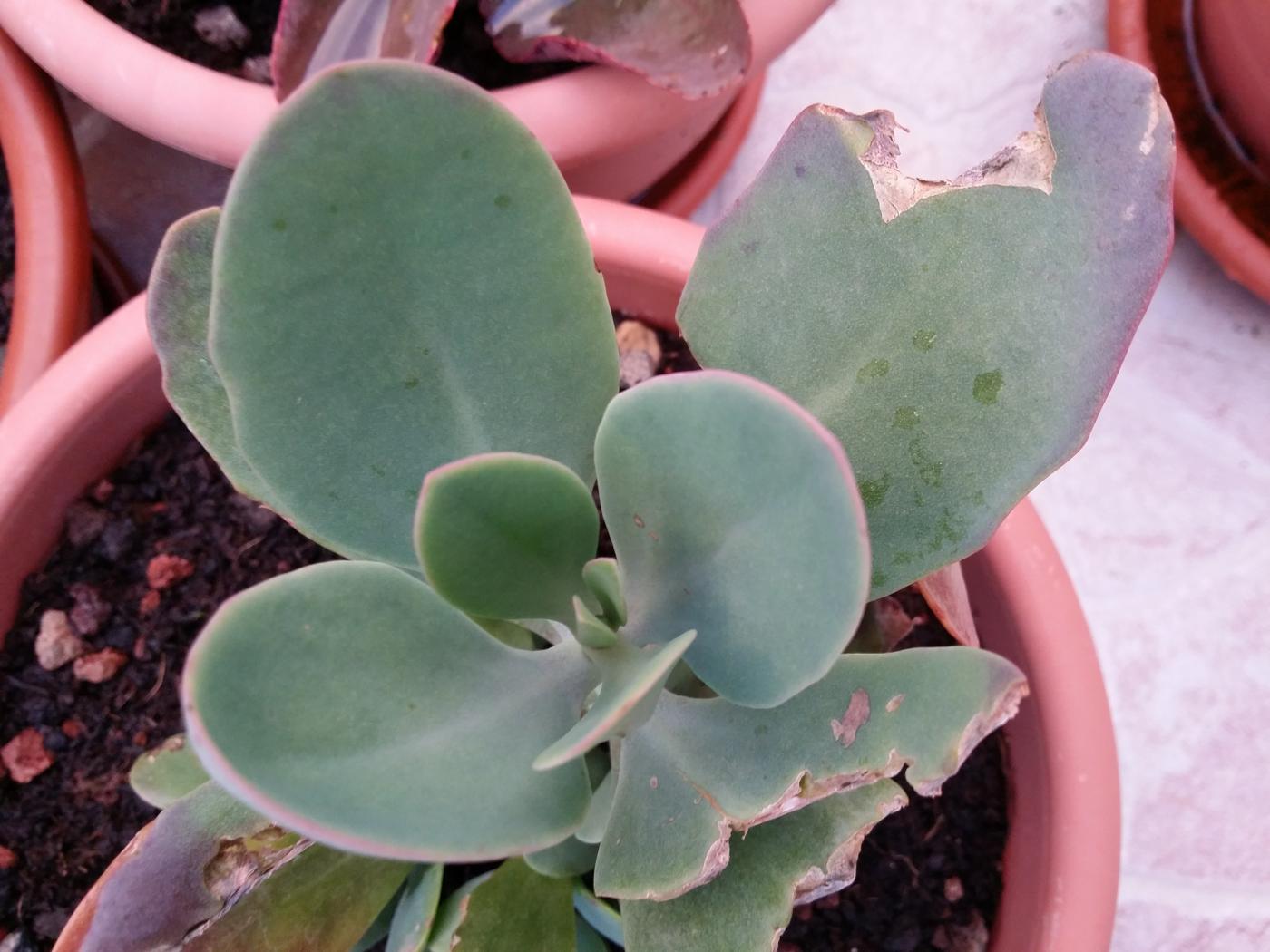
K. gracilipes x manginii 'Tessa':
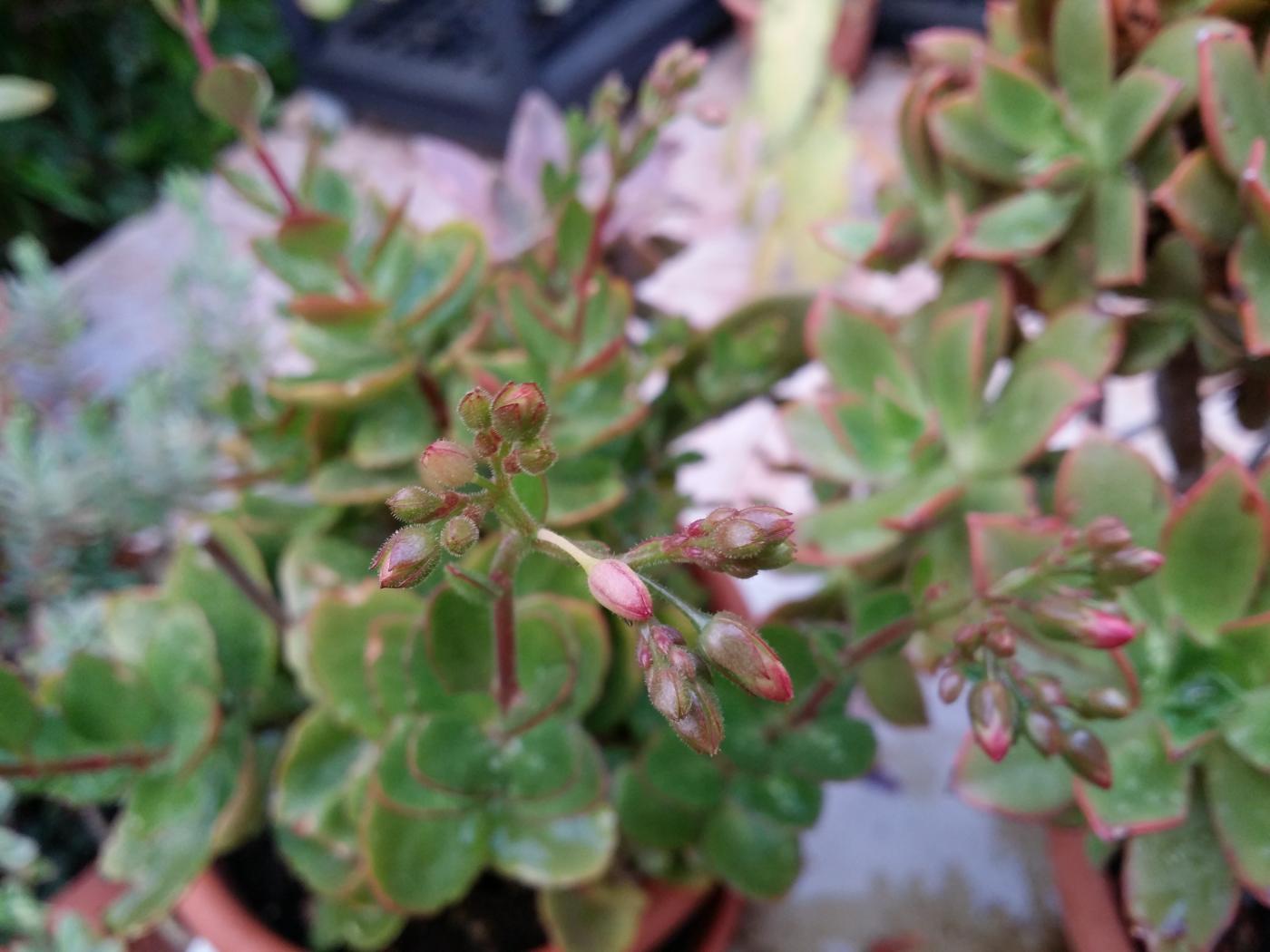
#37 Re: News » Kalanchoe and others in my collection » 2014-11-20 16:26:41
Nearly a month passed since my last post, during which my collection suffered through a very serious hail storm (the worst I've seen). Nevertheless, the plants have regenerated quickly enough to post some new photos... Excuse the 5cm holes and other types of damage on some leaves.
K. spathulata var spathulata in buds:
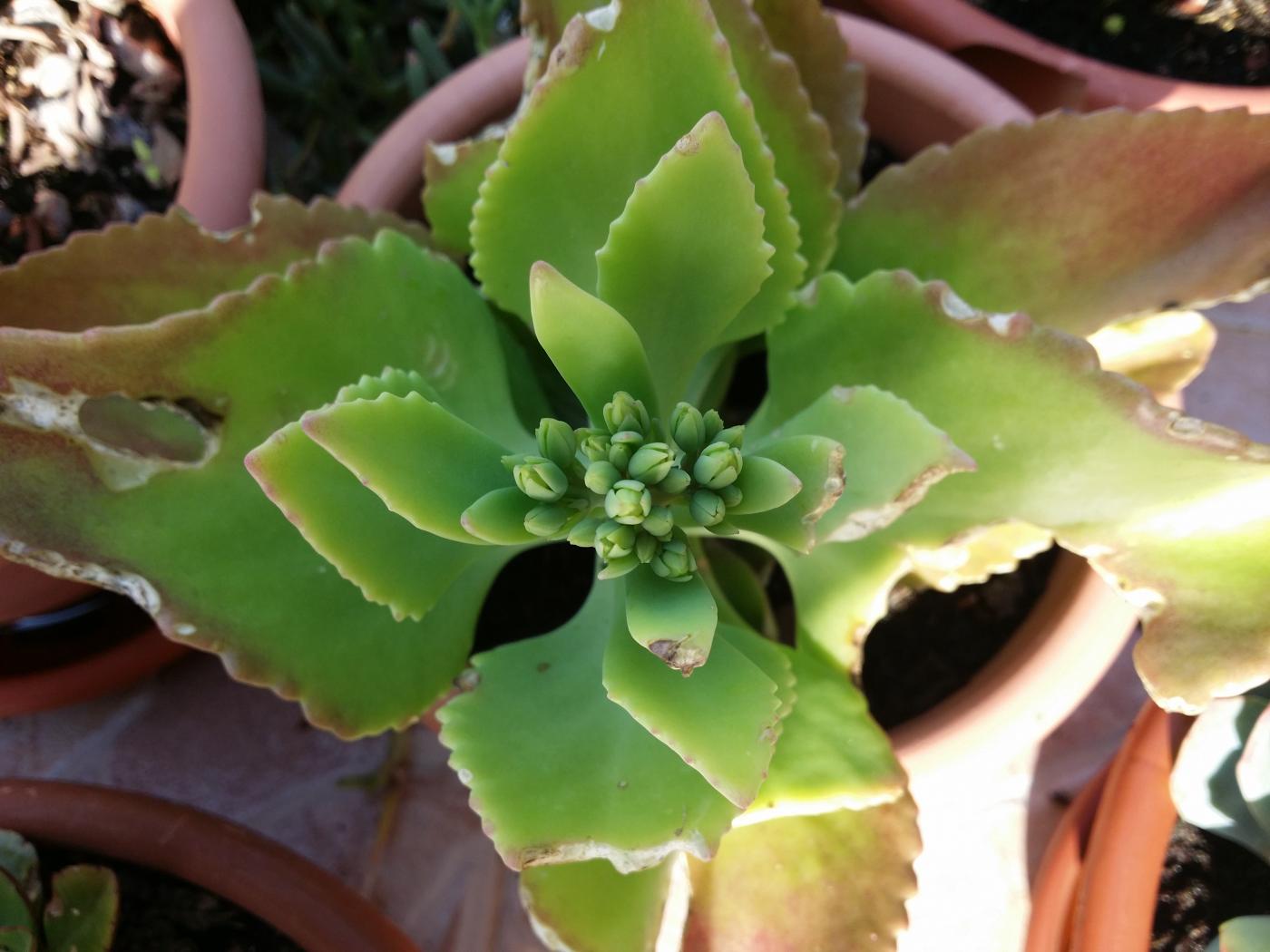
Kenyan K. prittwitzii will flower this year:
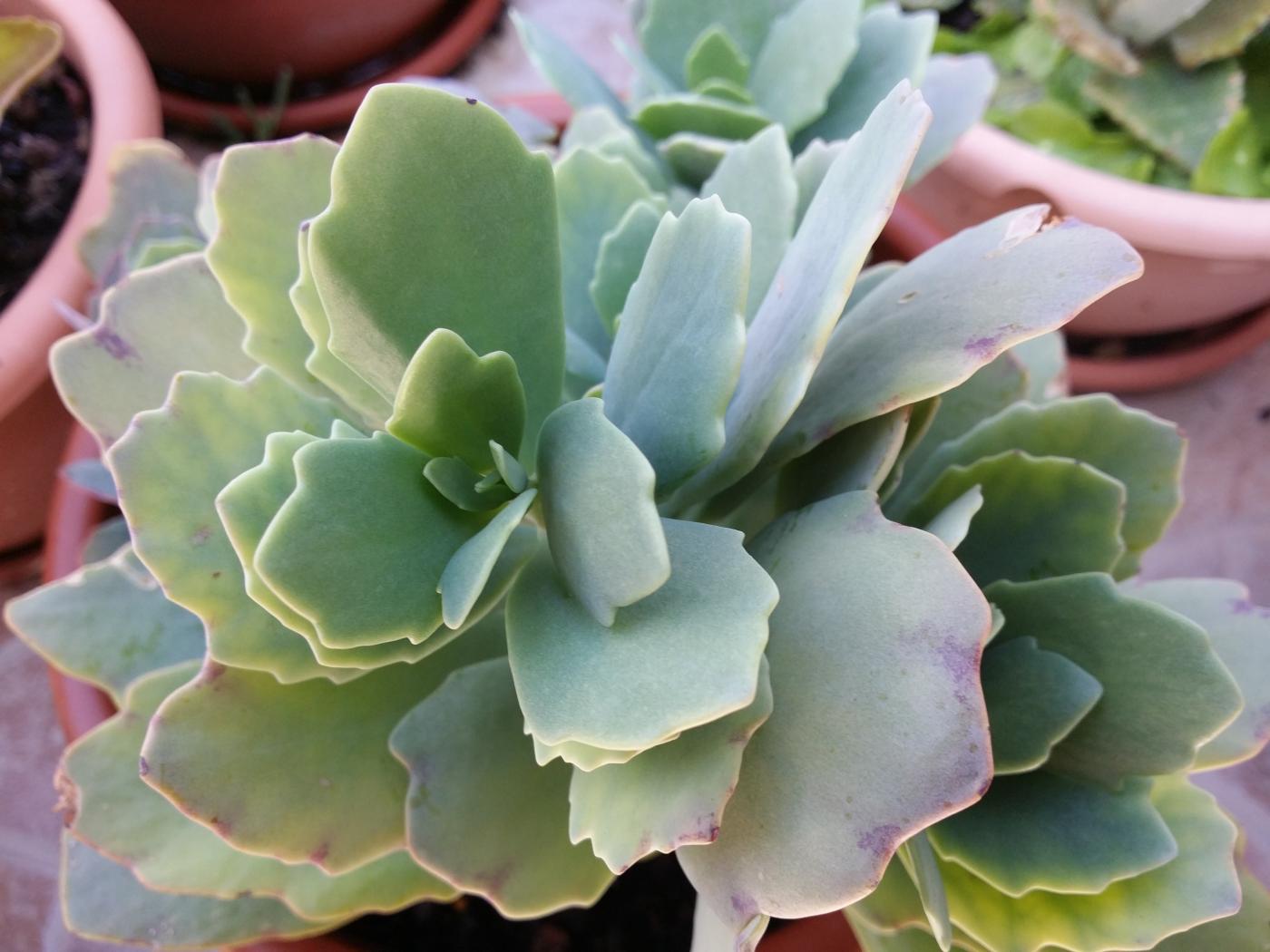
K. peltigera:
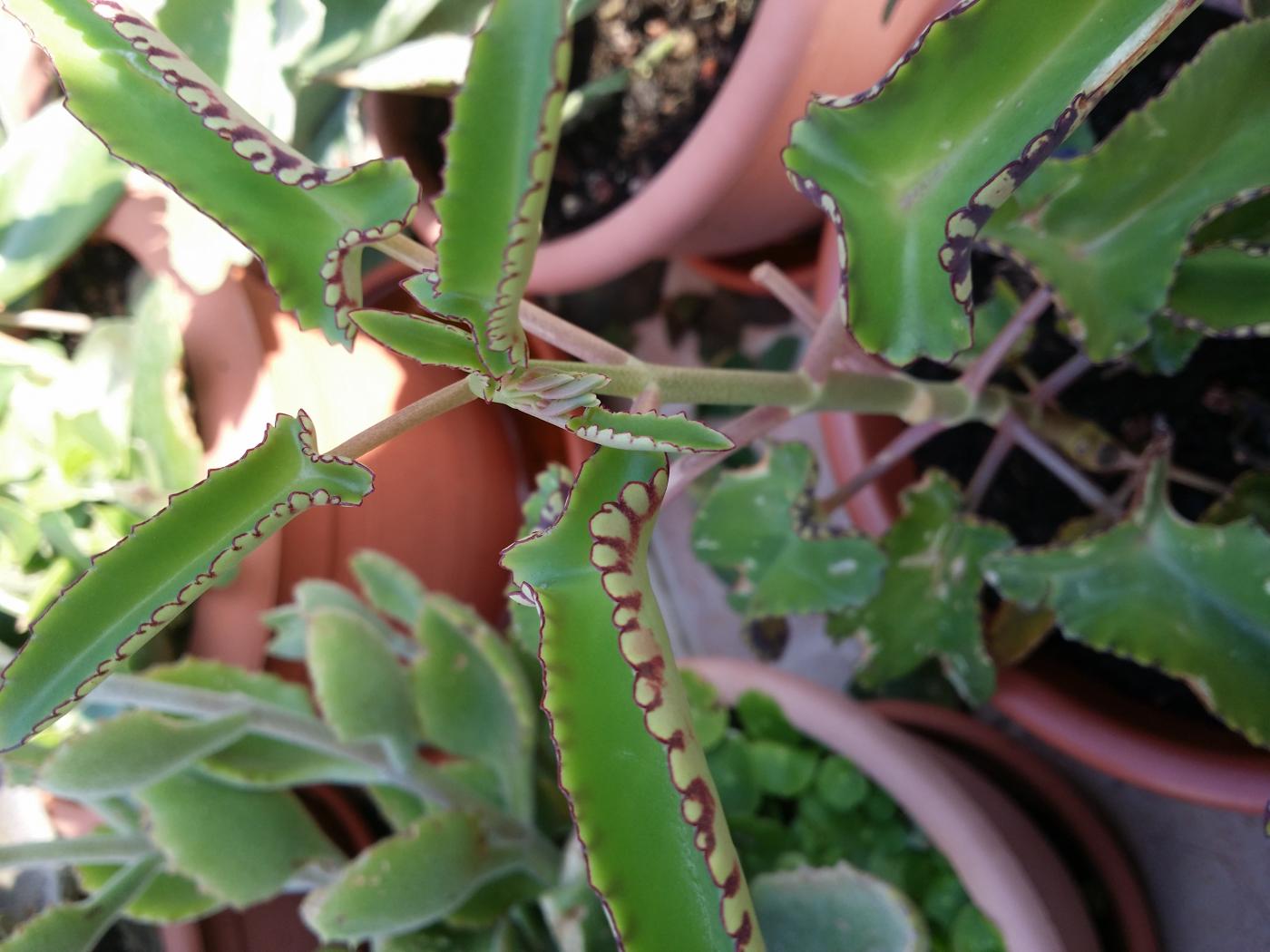
K. rebmannii:
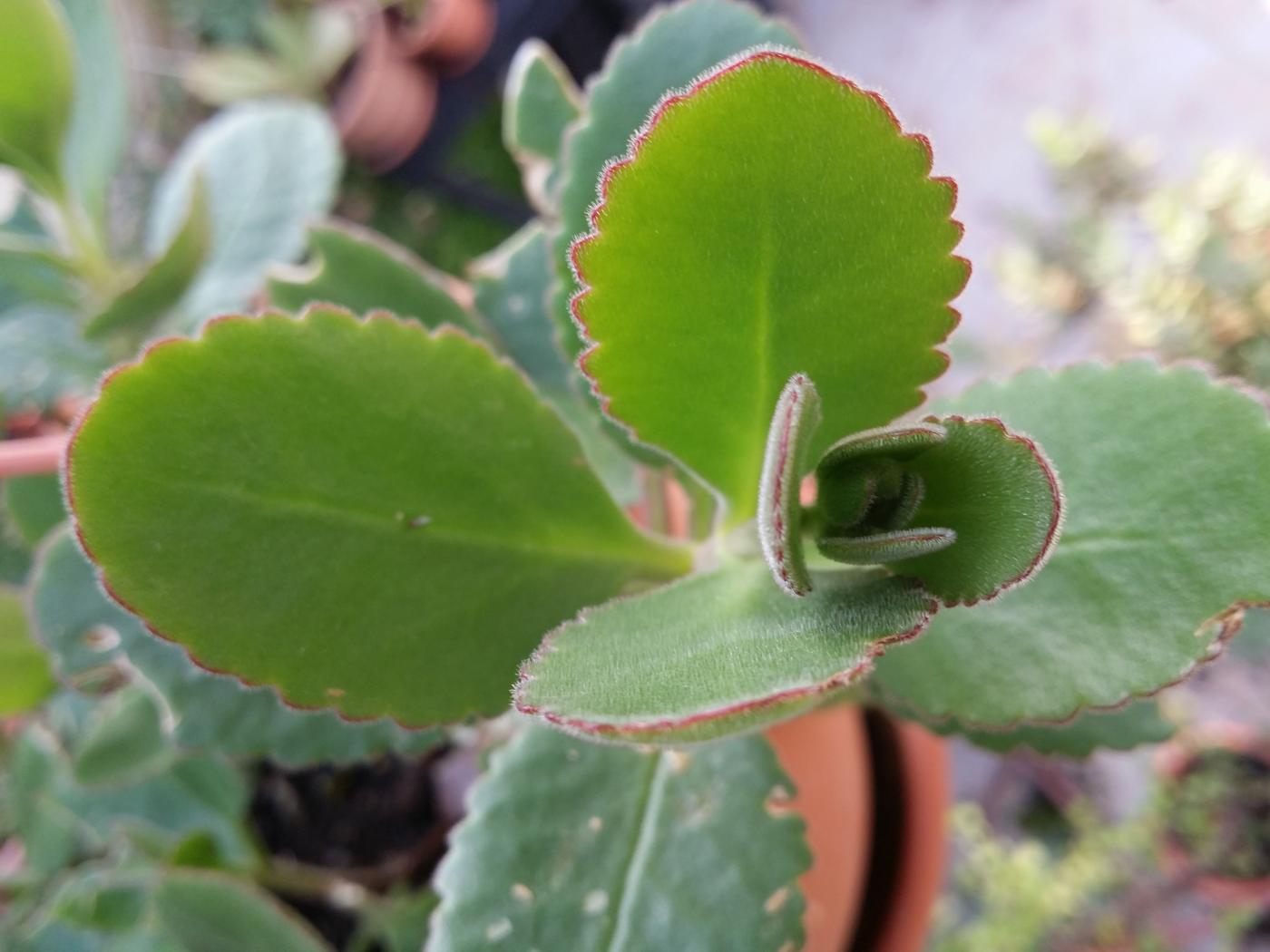
K. rosei ssp/var rosei:
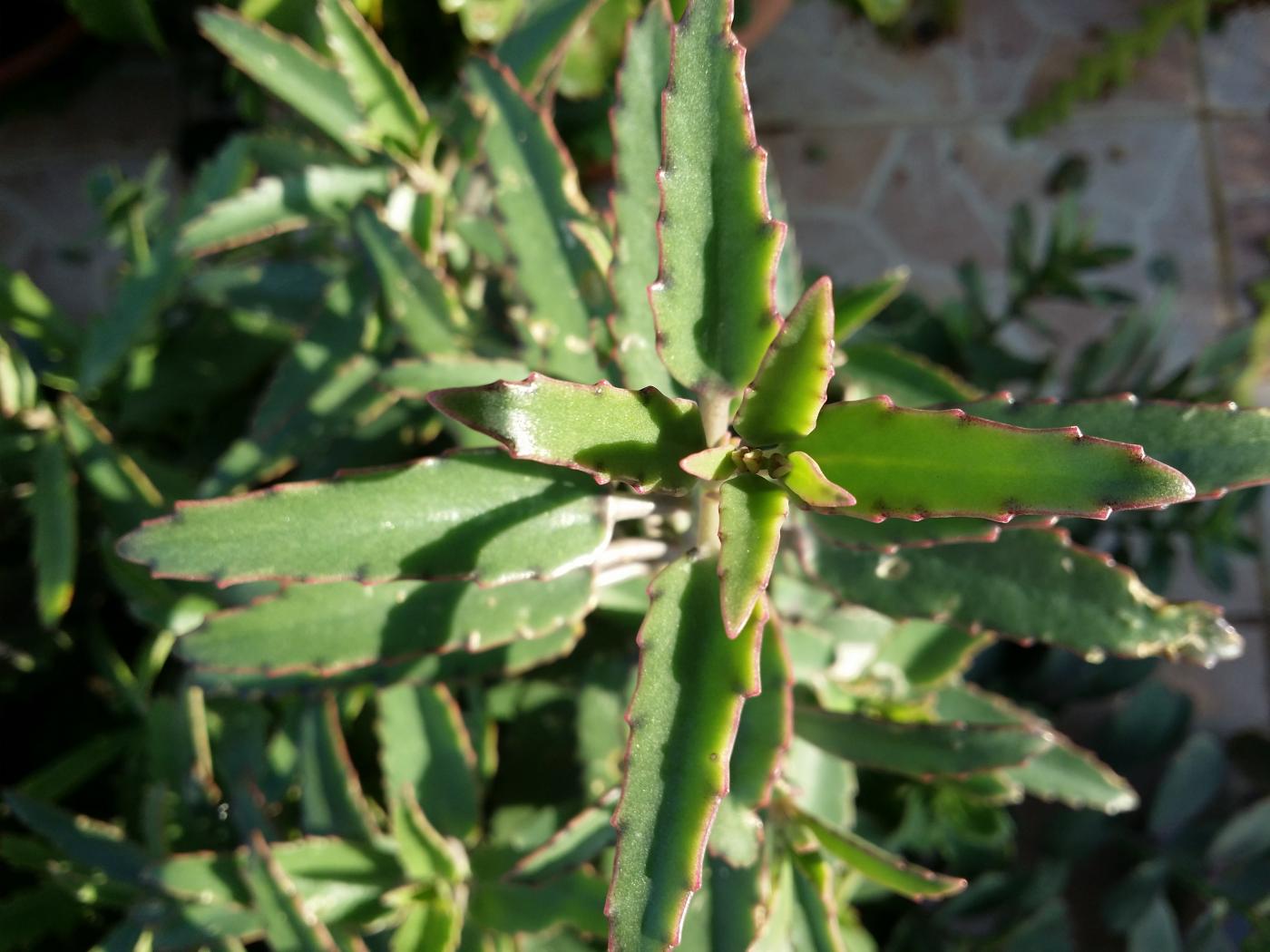
My "regular" clone of K. laxiflora:
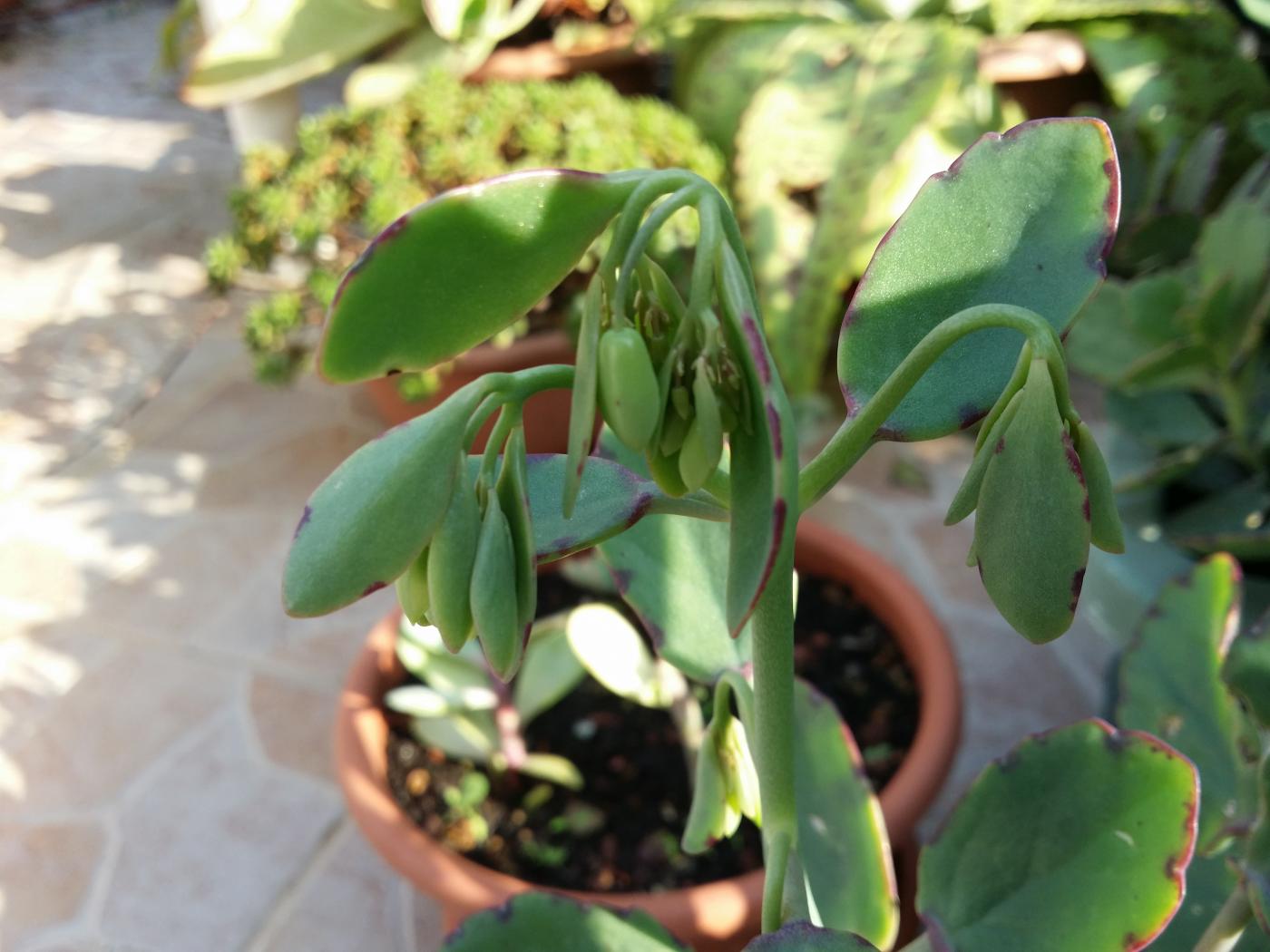
K. tomentosa 'European Clone':
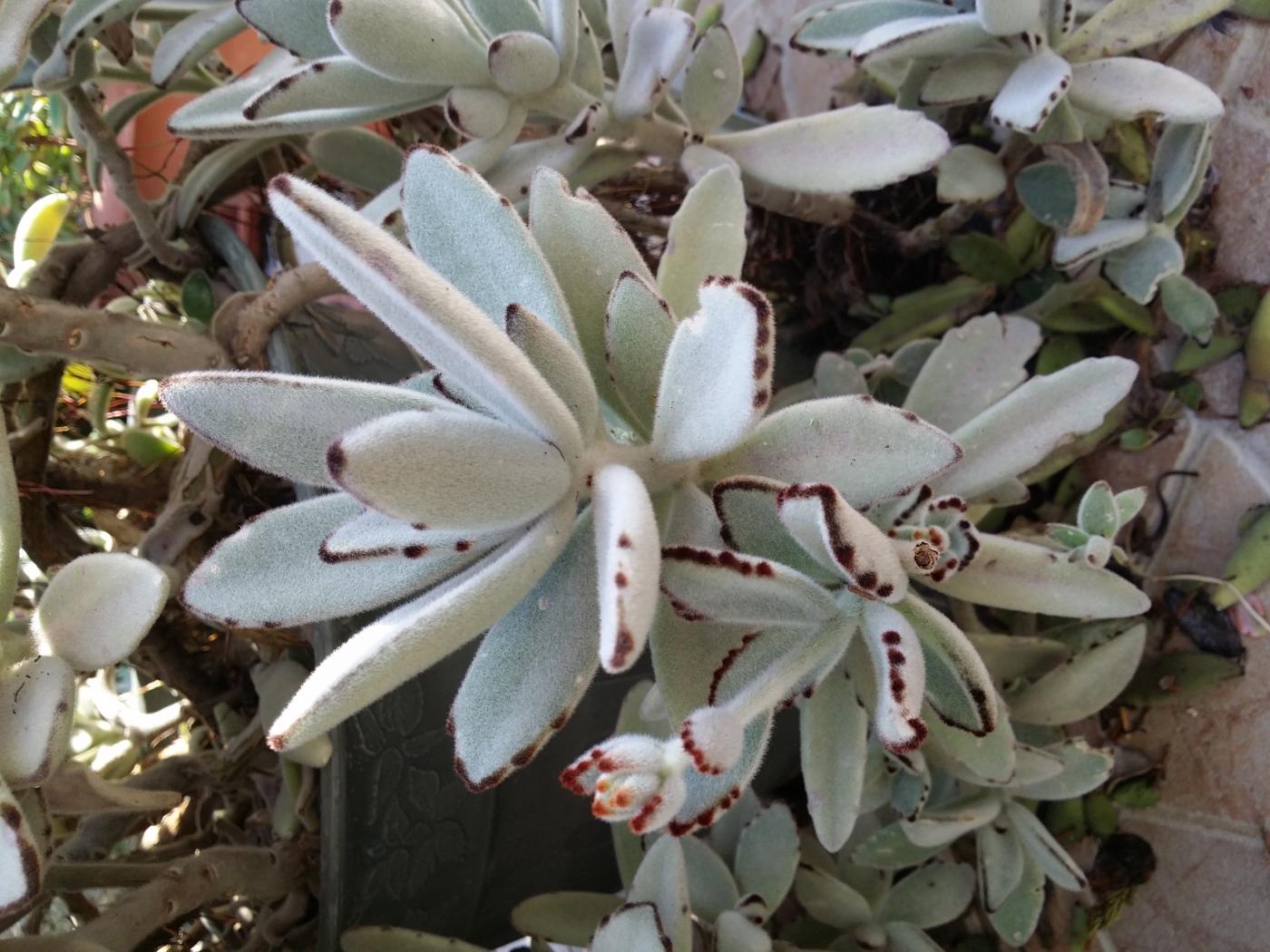
A surprise - K. rubella, derived from a bulbil, with leaves in whorls of three:
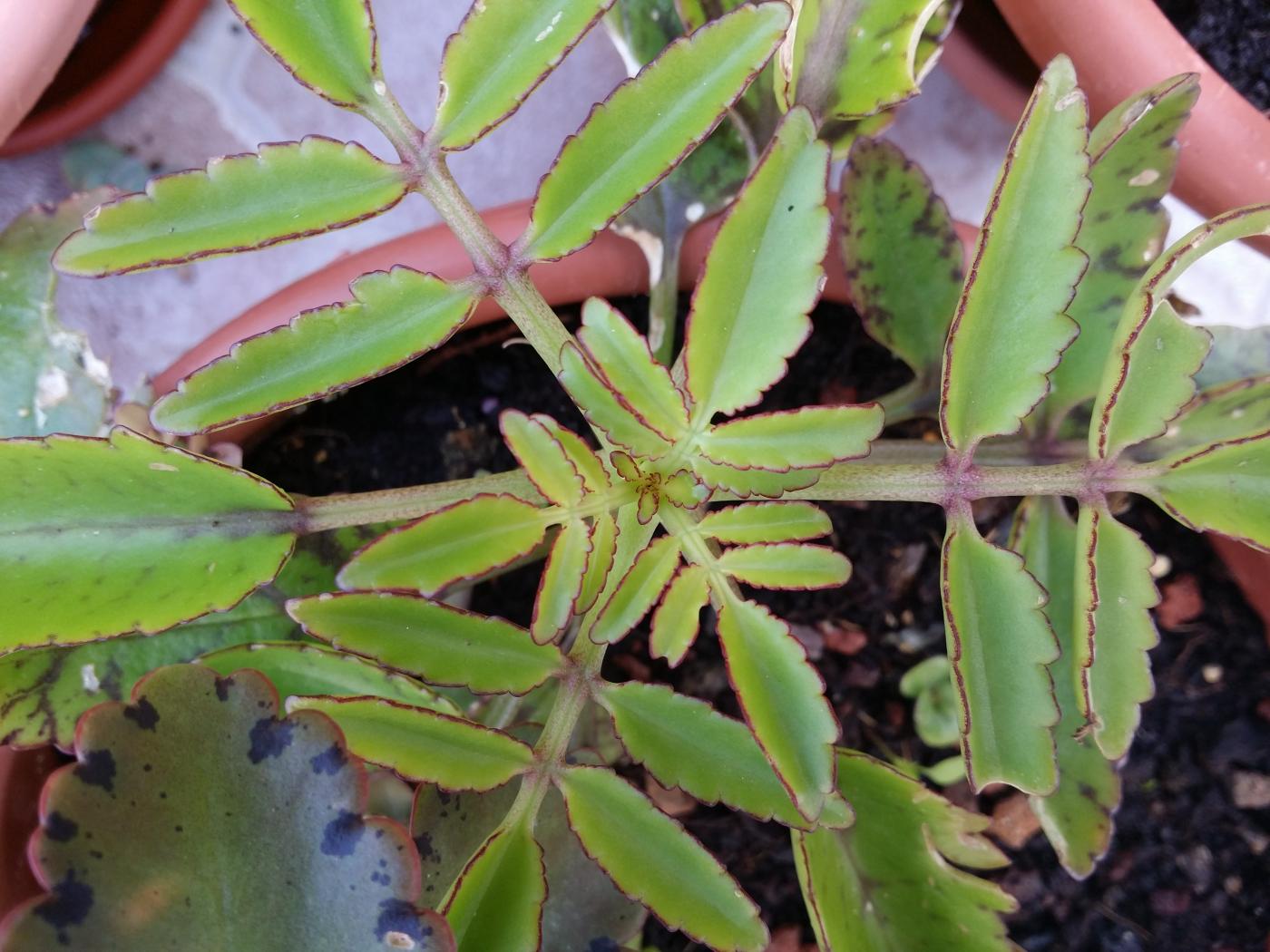
#38 Re: News » Kalanchoe and others in my collection » 2014-10-27 16:37:35
K. peltigera looks really great right now, maybe I'll witness it's flowers for the first time soon?
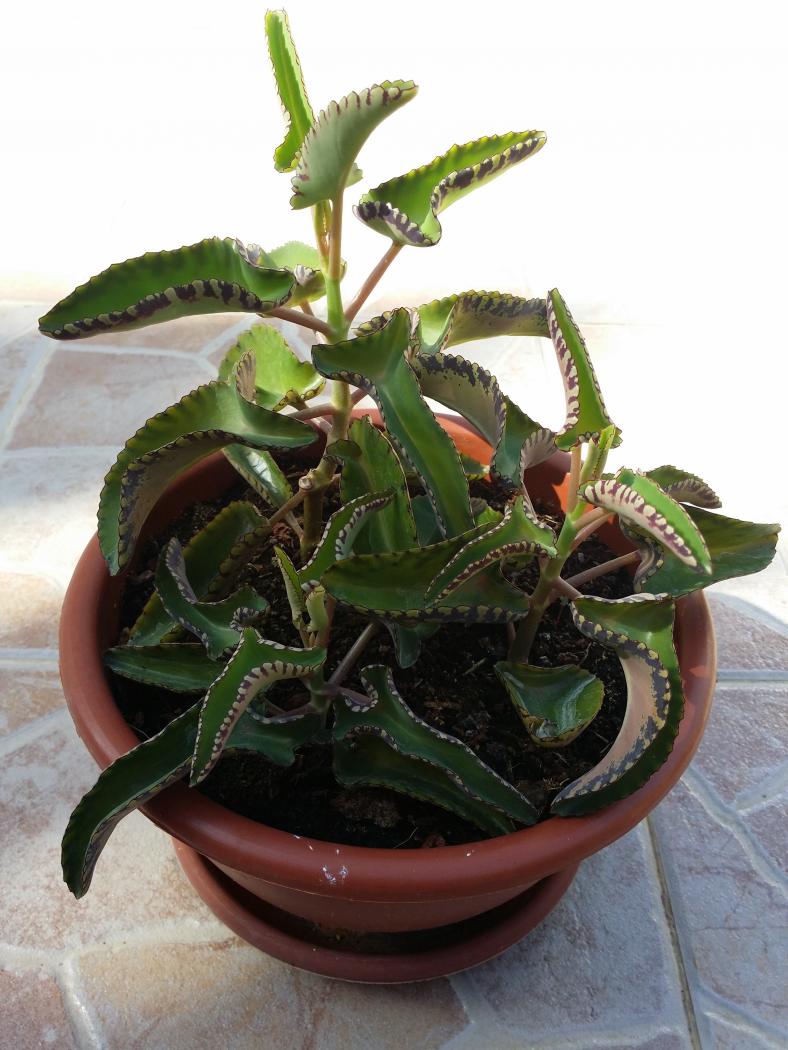
K. spathulata var spathulata will flower soon:
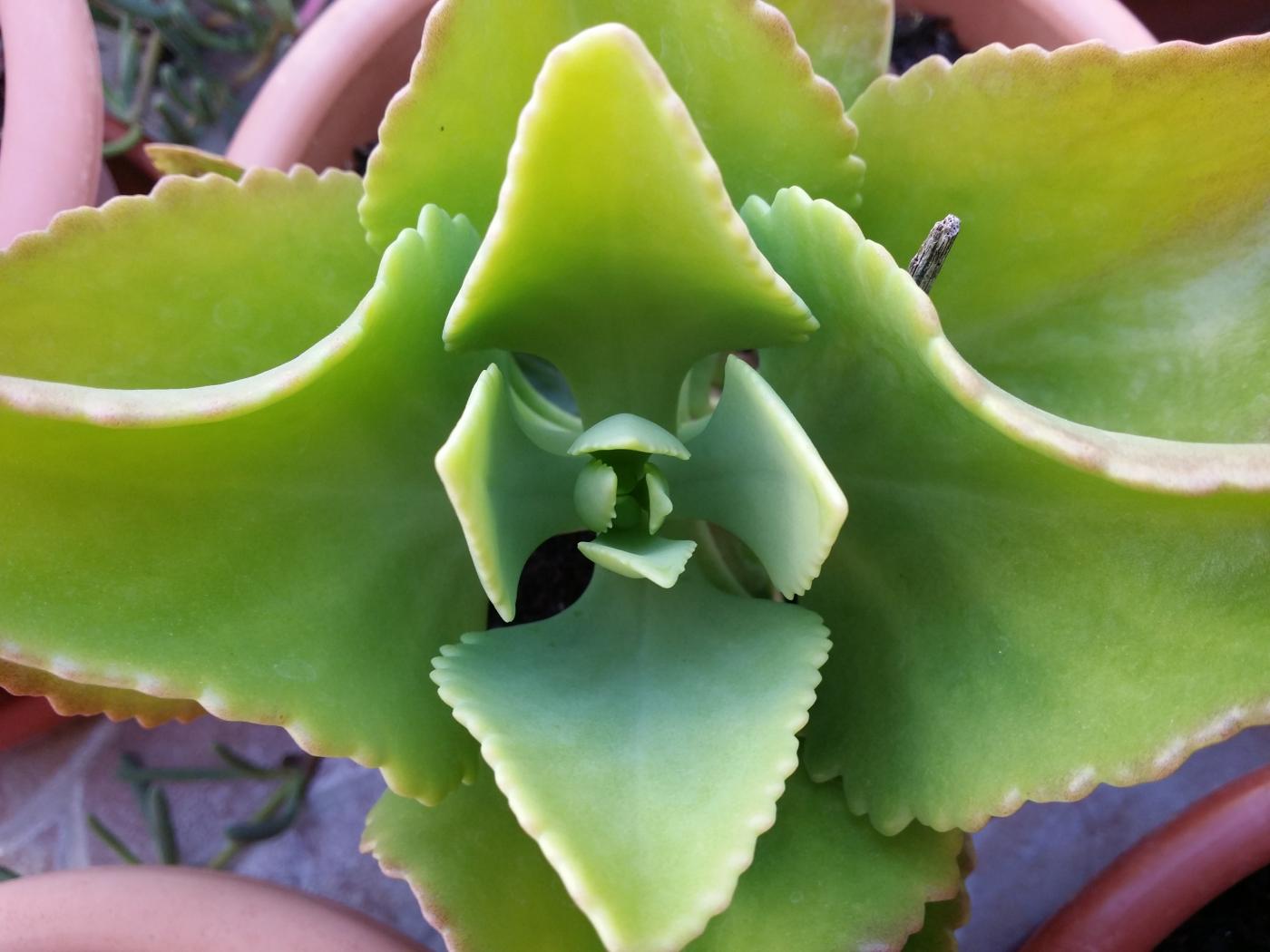
My typical clone of millotii, too:
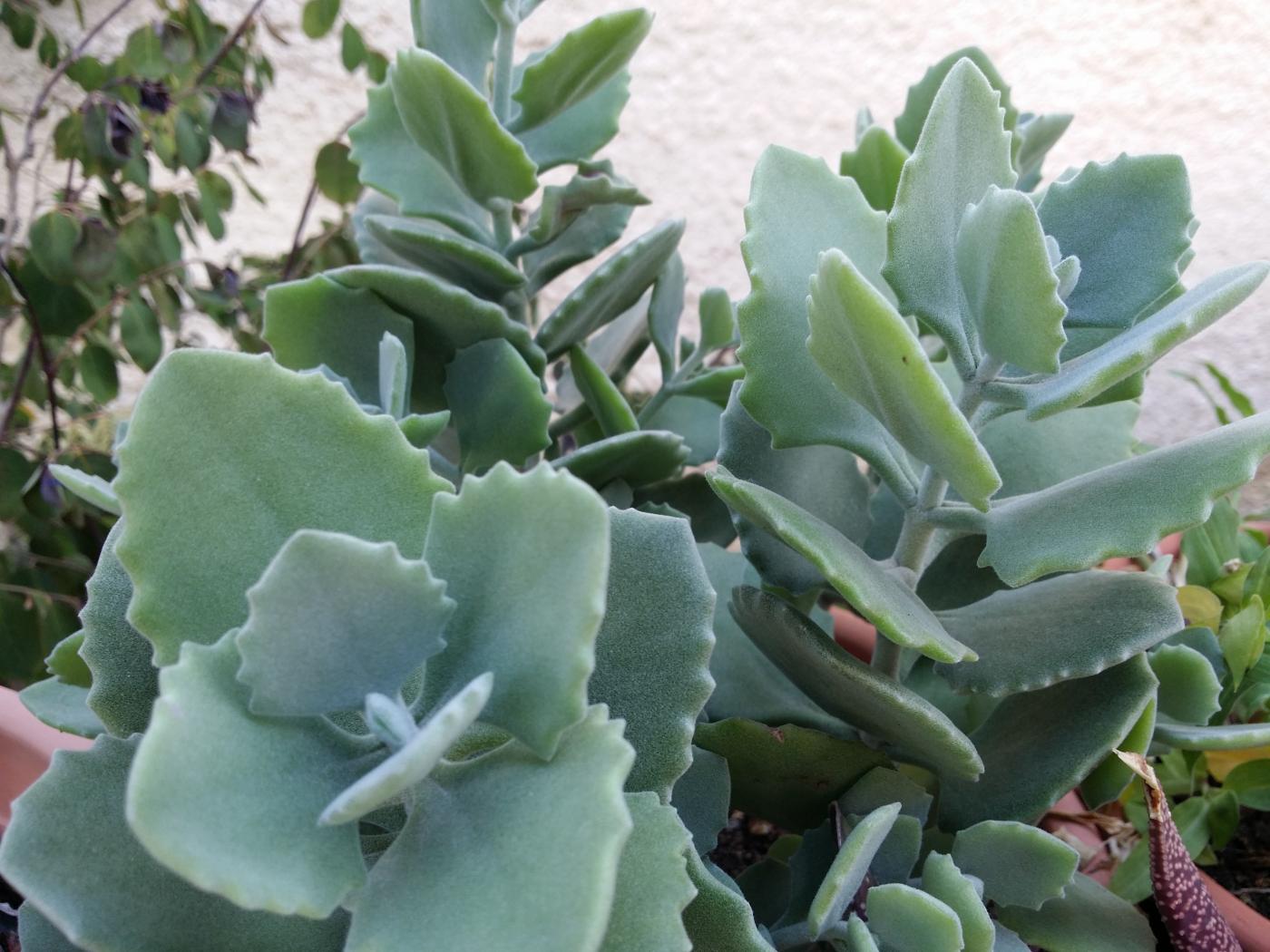
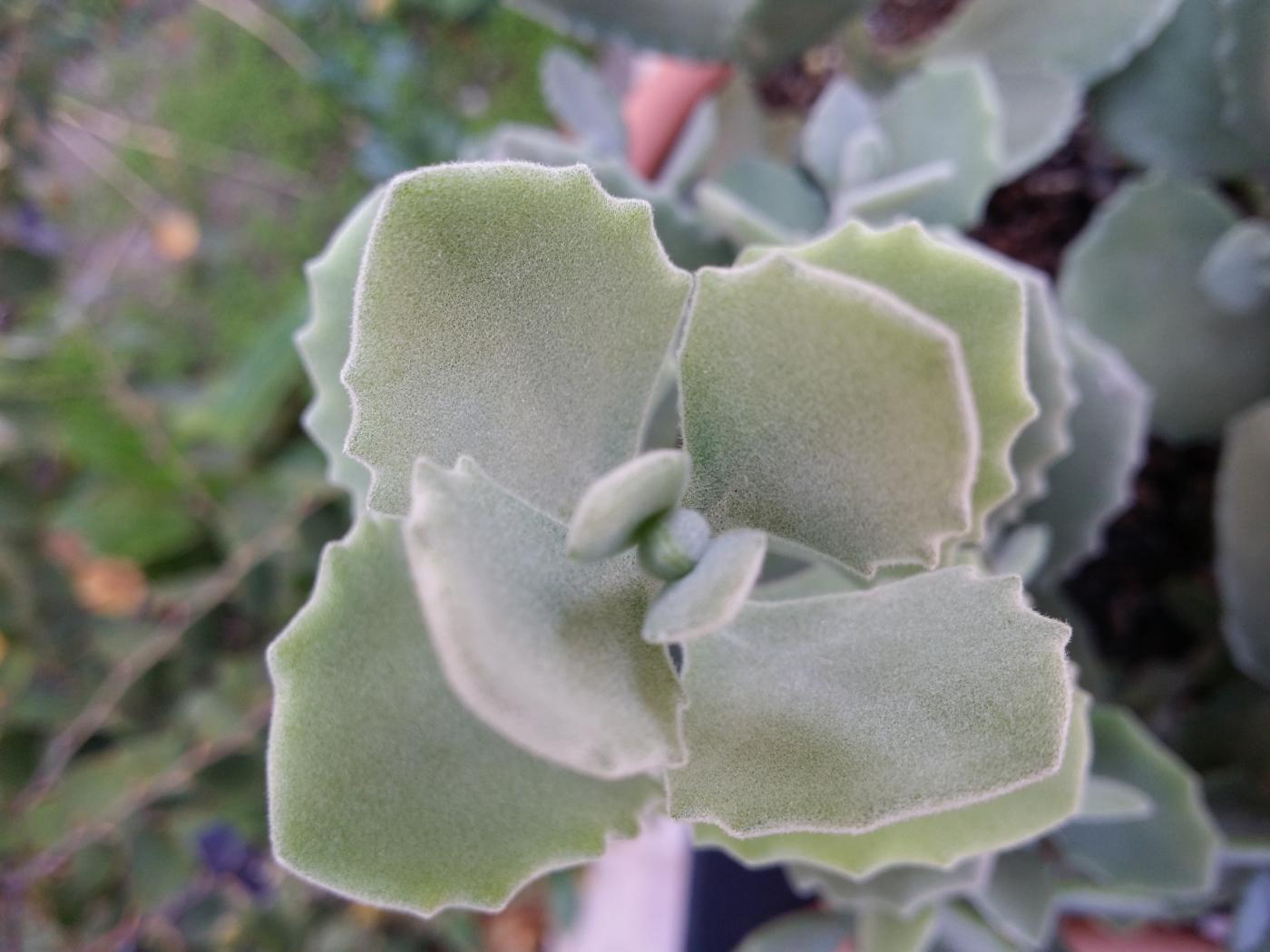
As well as both clones of humilis:
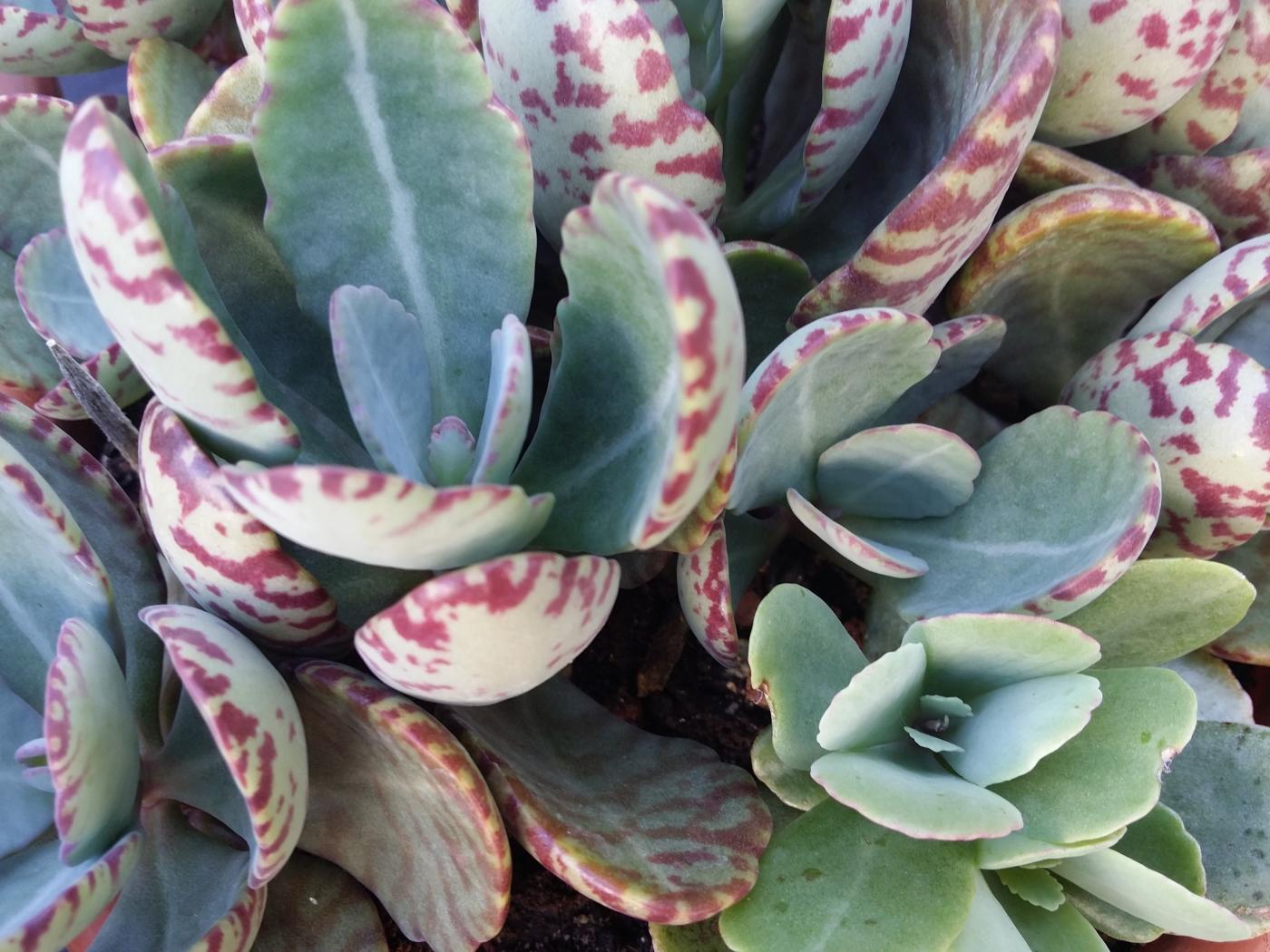
And marnieriana:
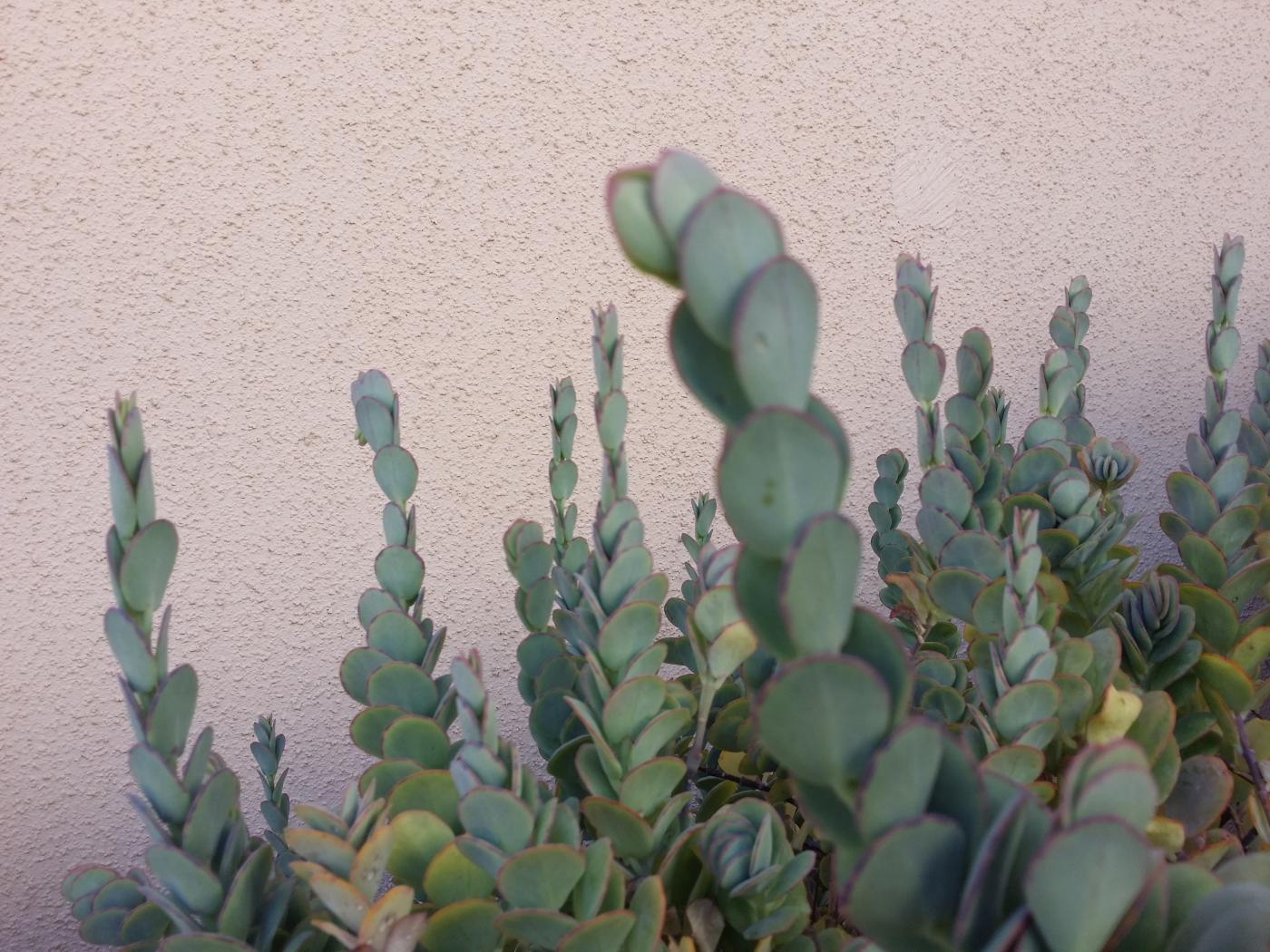
#39 Re: News » Crassula rupestris ssp. rupestris » 2014-10-26 16:48:01
What a beautiful demonstration of intra-specific variability!
#40 Re: News » Kalanchoe and others in my collection » 2014-10-26 16:38:43
Thank you, Tom, 'Rose leaf' indeed flowers in massive quantities and for a long time - I even had to tie one of the inflorescences before it completely broke off from excessive weight. And the pink color is much more attractive than that of beharensis...
Thanks, Margrit, for using these photos! I'll post some new ones tomorrow.
#41 Re: News » Kalanchoe and others in my collection » 2014-10-24 14:26:36
Sven's 4th clone is indeed the most velvety I've seen of this species, much more than mine...
When I got maromokotrensis it looked just like in Benoît's first photo - the same leaf shape and color. My conditions are clearly different!
Below is 'Rose Leaf' from March-April 2014:
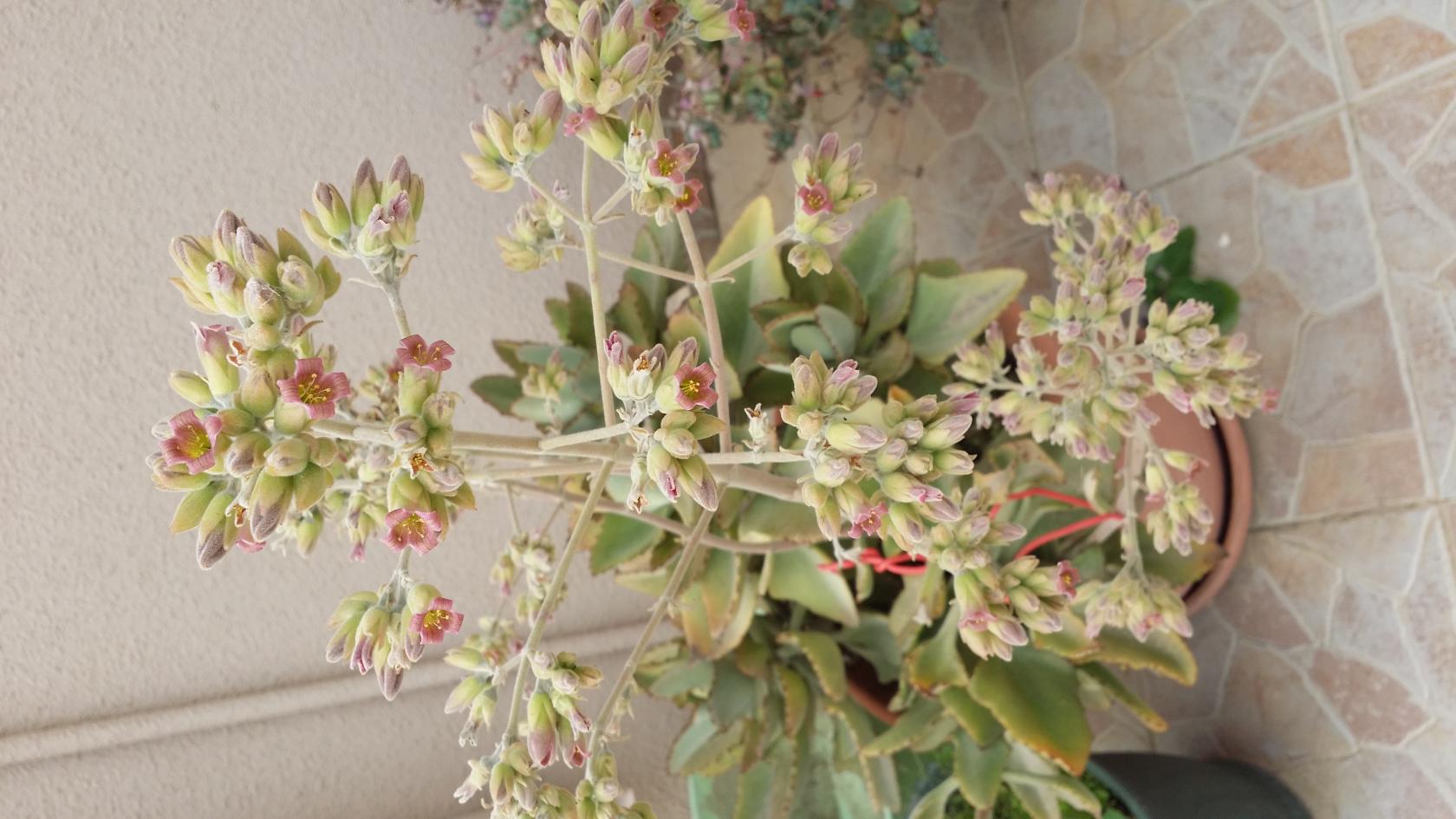
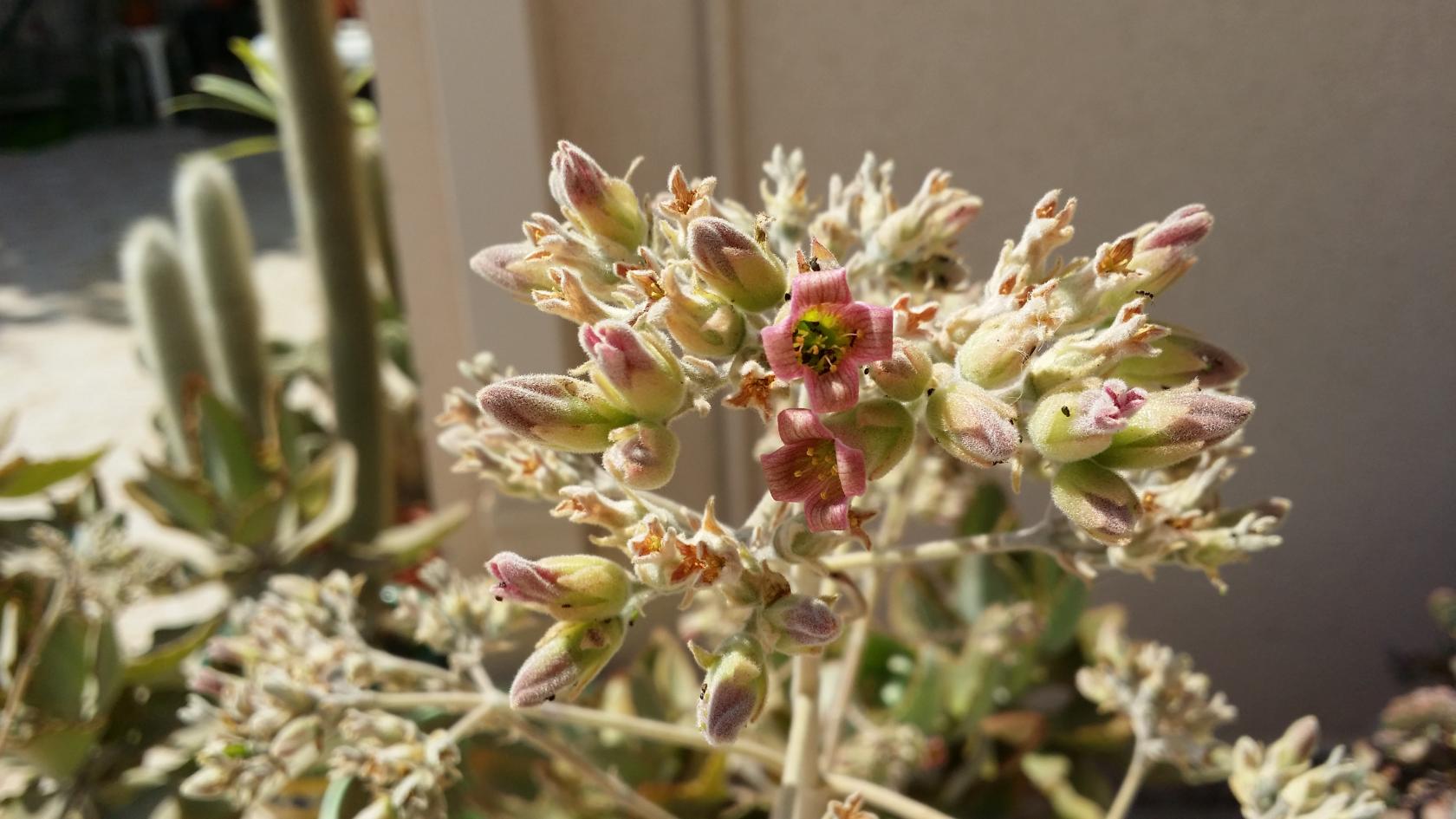
Also, Lenophyllum are flowering now, including this L. guttatum (grown from a leaf potted during the winter):
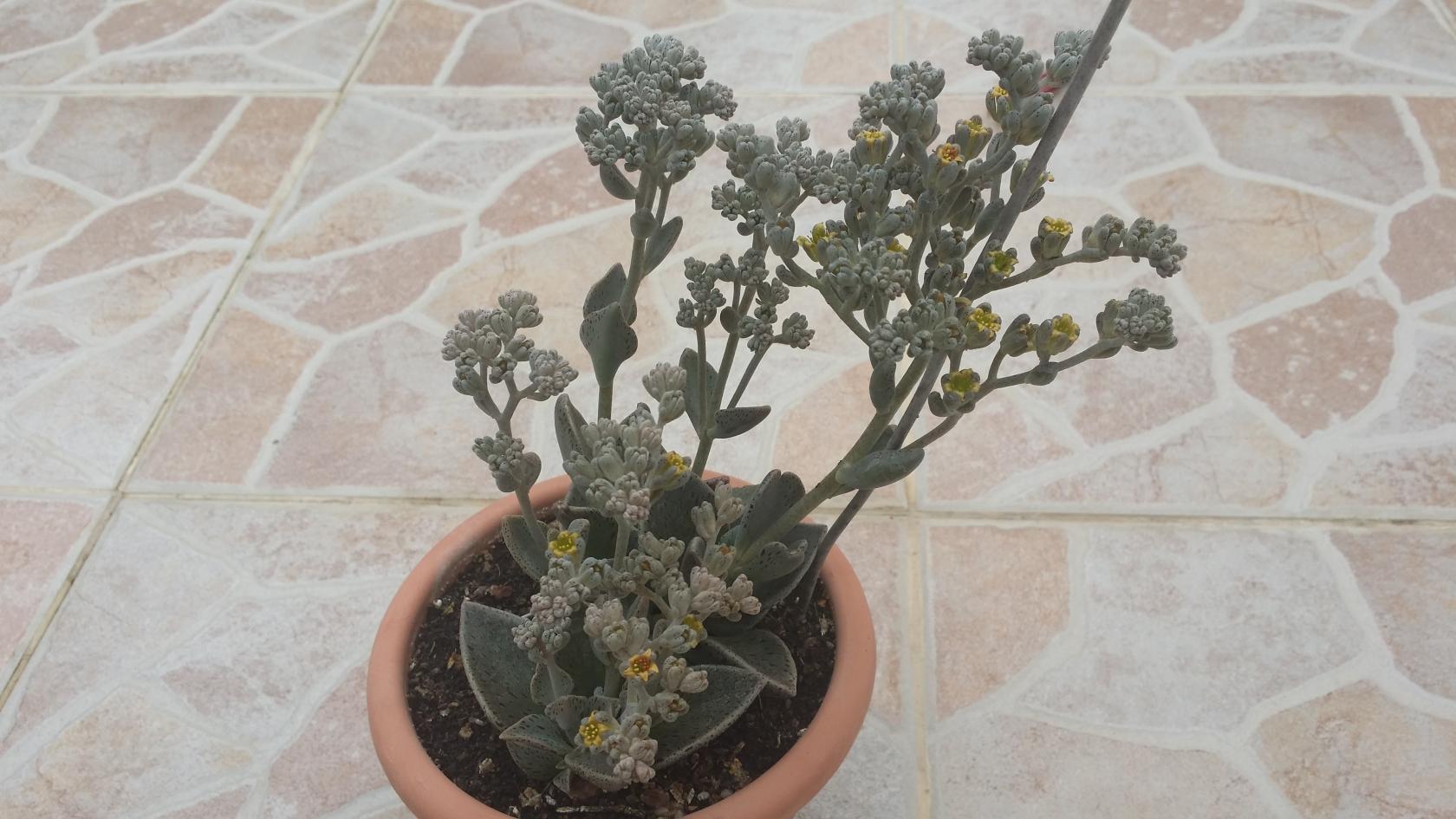
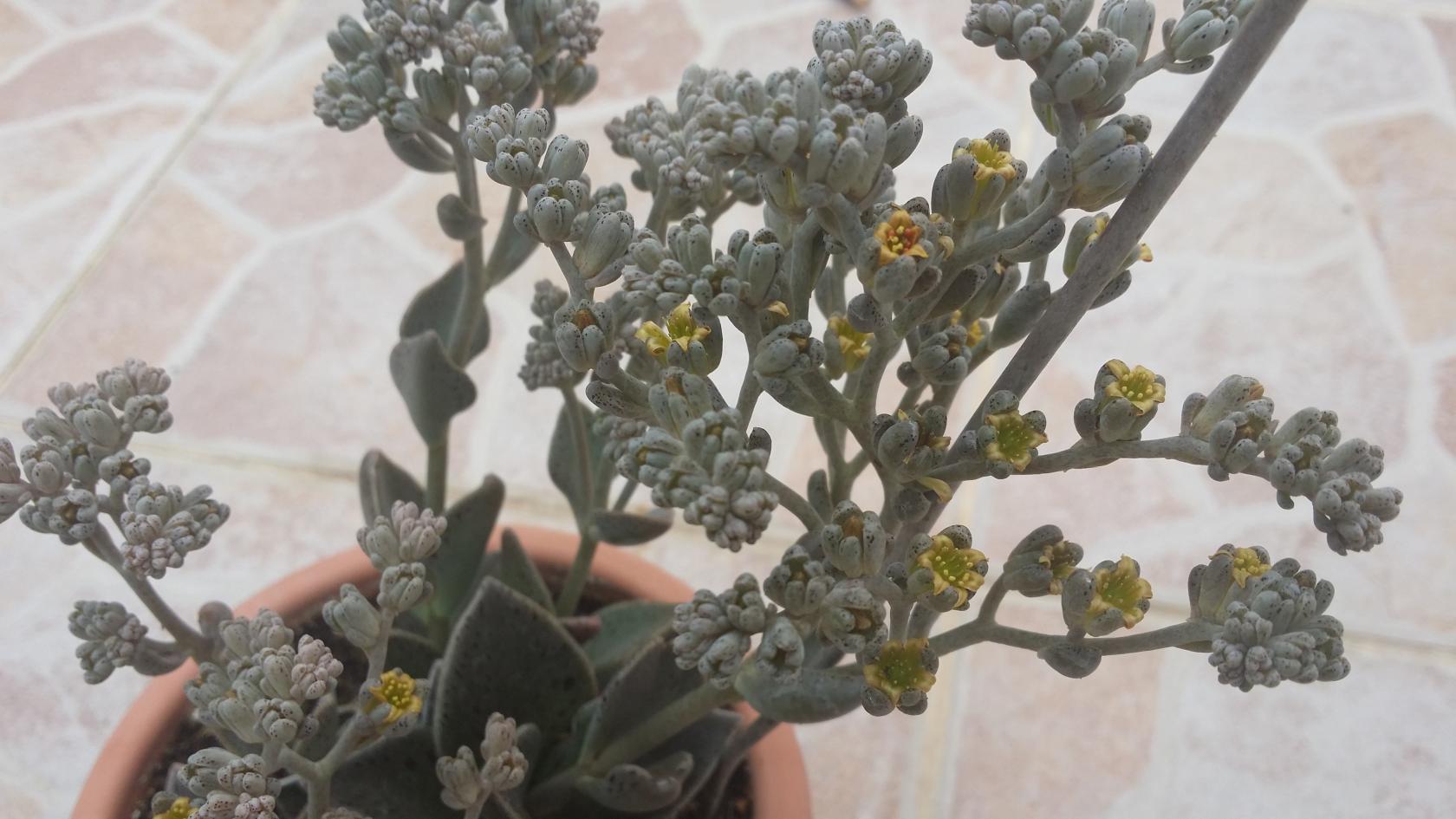
#42 Re: News » Kalanchoe and others in my collection » 2014-10-22 17:55:47
'Rose Leaf' flowers every year, if you want I have photos from previous years...
When I got maromokotrensis it had much rounder leaves like in Benoît's first photo... What really surprised me though is the brown-pink coloration, this species online ranges from dark to light green without this pink tan. It is definitely one of the least familiar species to me!
And of course I agree, but maybe you would like better photos, from another angle or background?
#43 Re: News » Kalanchoe and others in my collection » 2014-10-22 14:42:31
Most Kalanchoe flower in my country after mid November, so there aren't many updates yet...
Below is a photo of the recently acquired hairy K. synsepala, and a leaf fragment cutting of it. The hair is not very visible - it is very dense and short, and this is why I shot at this weird angle. Sometimes, when the leaves are wet, they are even somewhat sticky because of the hair...
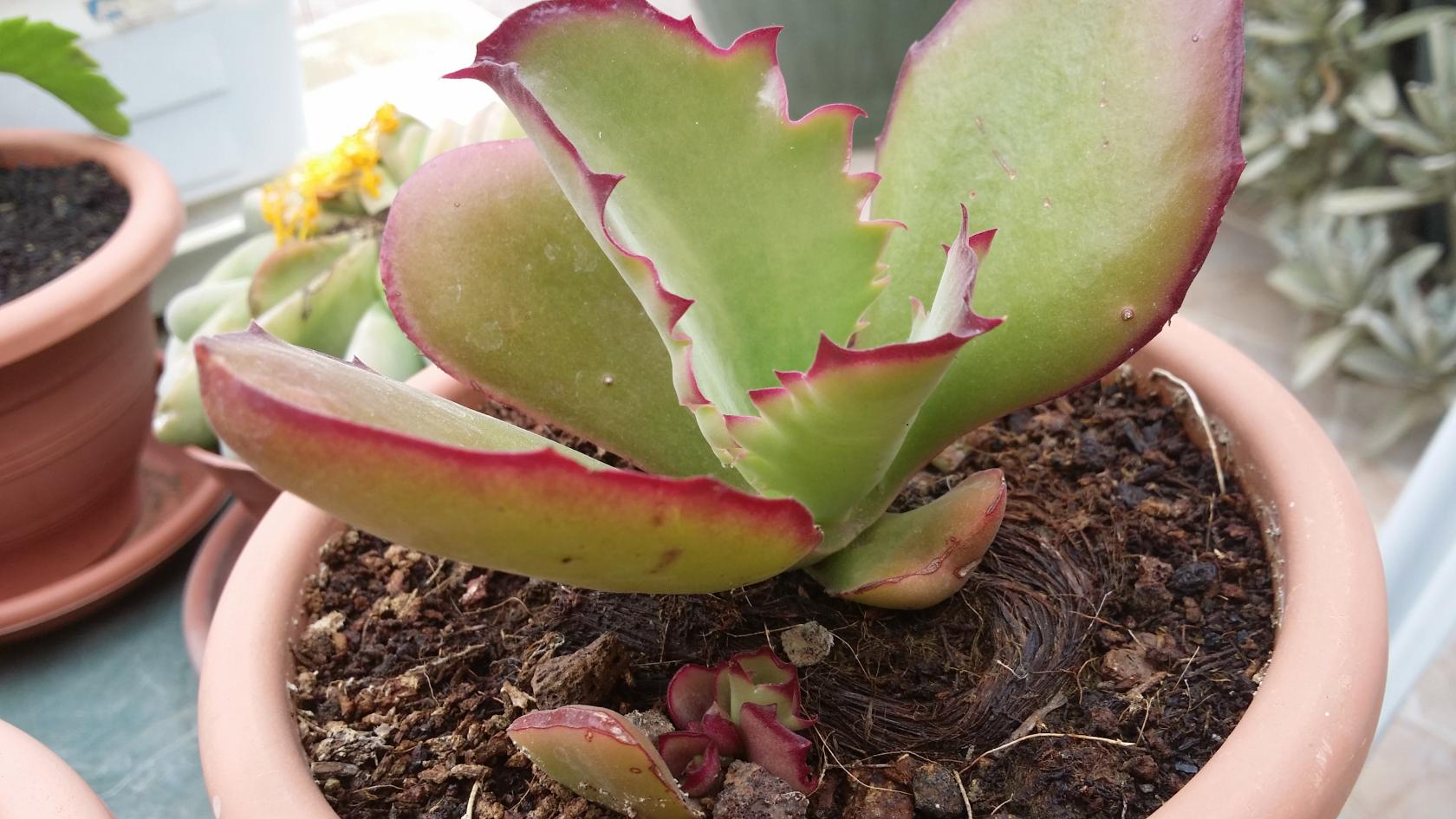
Below are K. laetivirens that prepare to flower. They are located on the western side of my house, while most other plants are on the eastern. K. laetivirens of the eastern side aren't even close to flower and are much bigger in size.
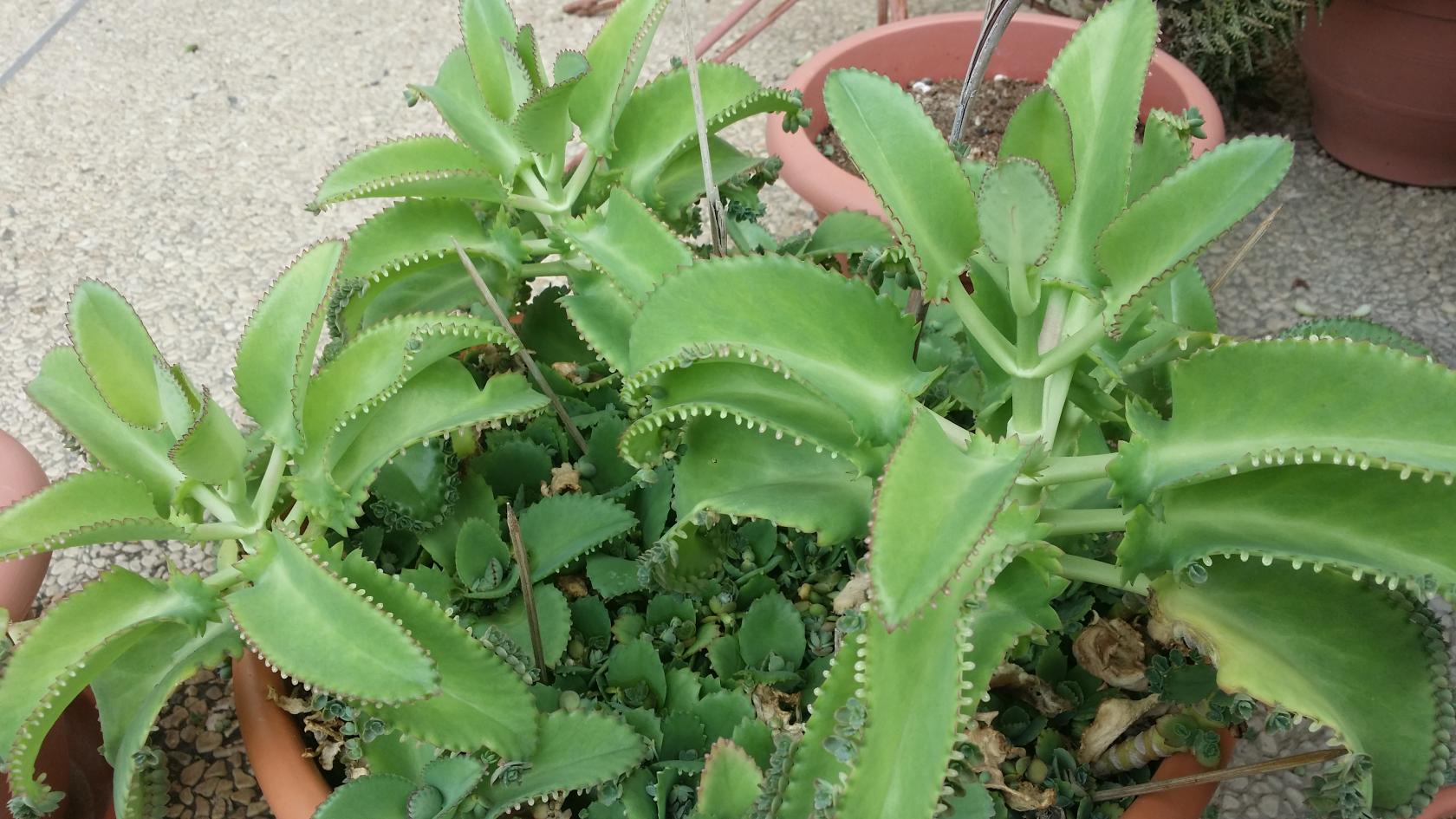
K. 'Rose Leaf' also prepares to flower:
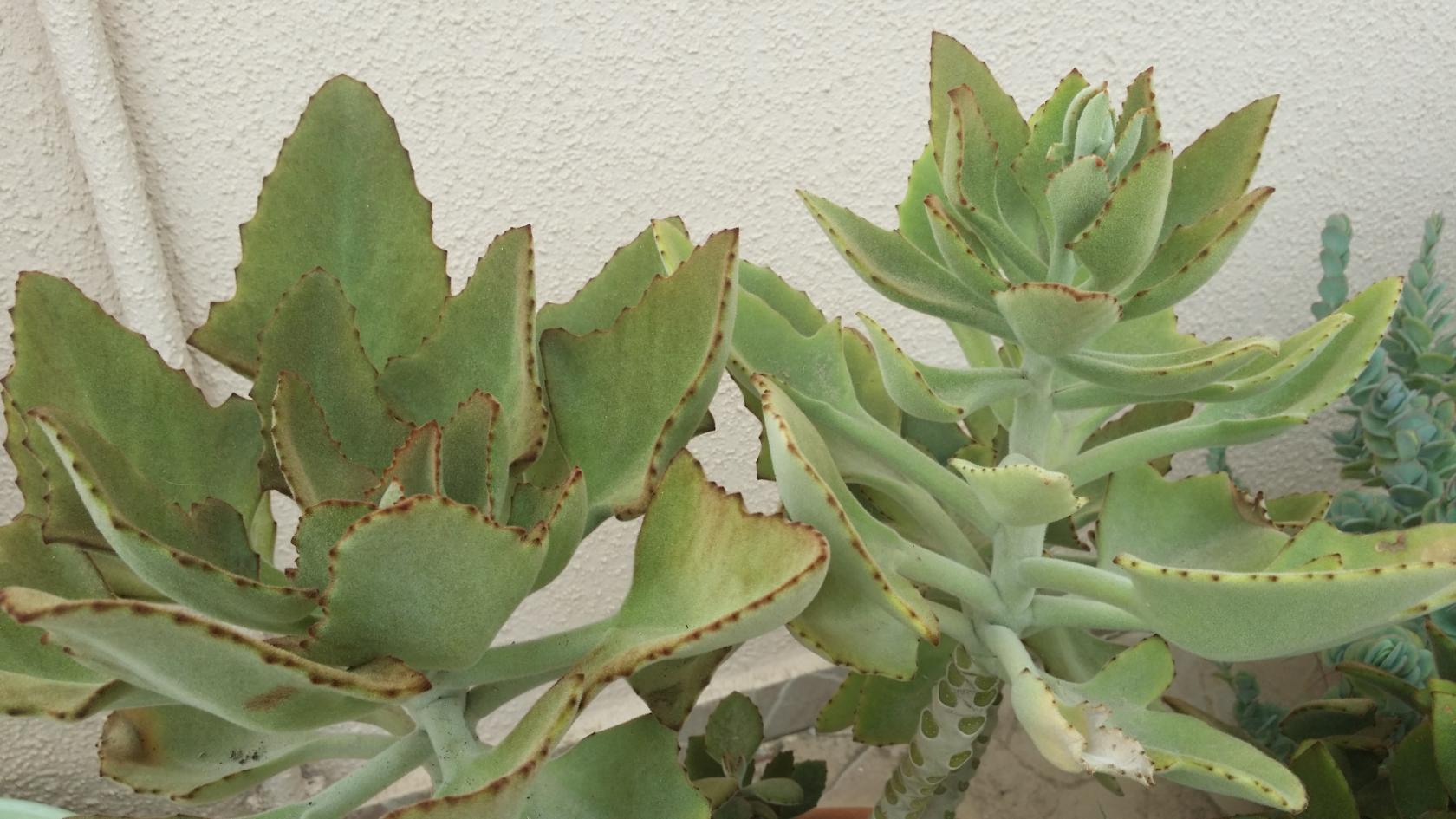
Below is K. maromokotrensis - the large cutting, and a "plantlet" formed from a leaf fragment of the large cutting. K. maromokotrensis becomes wider by the day, and also changes its color.
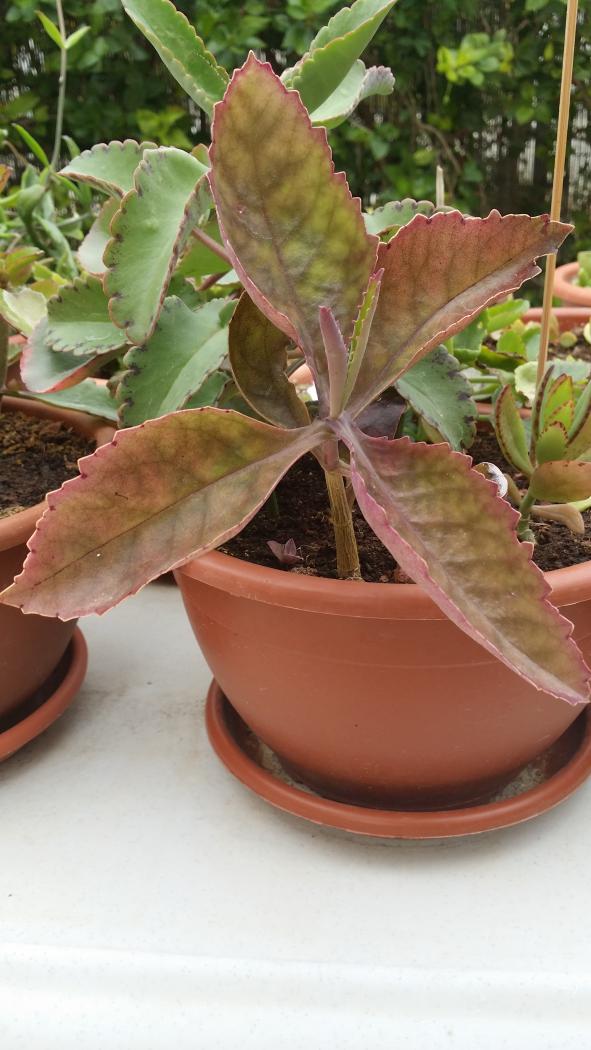
#44 Re: News » Photos au fil des jours » 2014-10-21 15:44:29
Yes, sorry of course it is 'Sunburst'! What is the large one in the first photo, A. canariense?
#45 Re: News » Photos au fil des jours » 2014-10-21 15:01:34
Sorry for replying in English. I'm not sure about the IDs (I'm mostly knowledgeable about Kalanchoe), but I hope this might help:
Aeonium (2) - A. decorum
Aeonium (3) - A. mascaense and A. 'Ballerina' (on the right)
Aeonium (4) - A. haworthii and A. sedifolium (on the right)
Aeonium (5) - A. arboreum 'Atropurpureum'
In Aeonium (1) there are also A. arboreum 'Albovariegatum' and A. arboreum 'Zwartkop'
#46 News » Kalanchoe and others in my collection » 2014-10-12 15:12:08
- Ronen
- Replies: 79
I decided to start posting photos of my plants, mainly the ones that are in flower, in the hopes that they might be interesting to you too. I'm not sure what is the correct way to post photos here, so would appreciate suggestions.
First Kalanchoe in flower this year - K. rotundifolia:
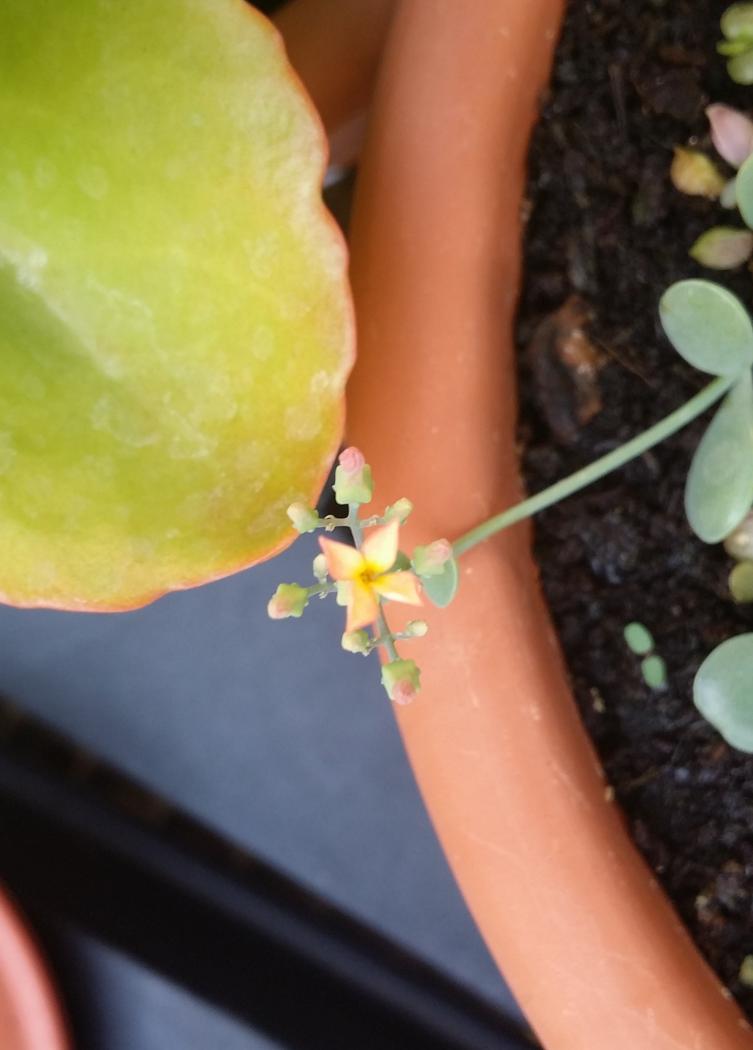
Next will probably be K. sexangularis:
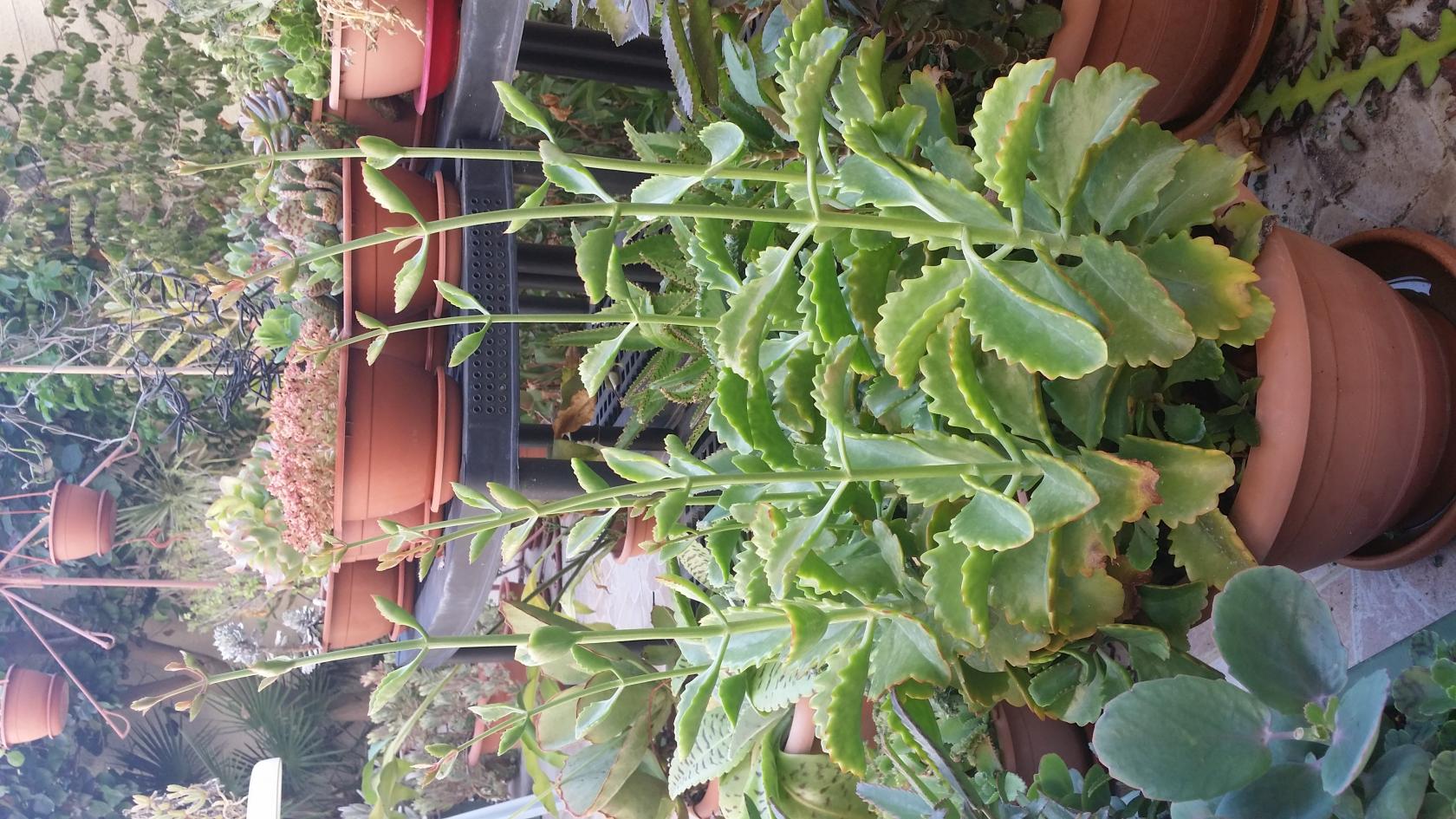
Or my hairless var of K. synsepala:
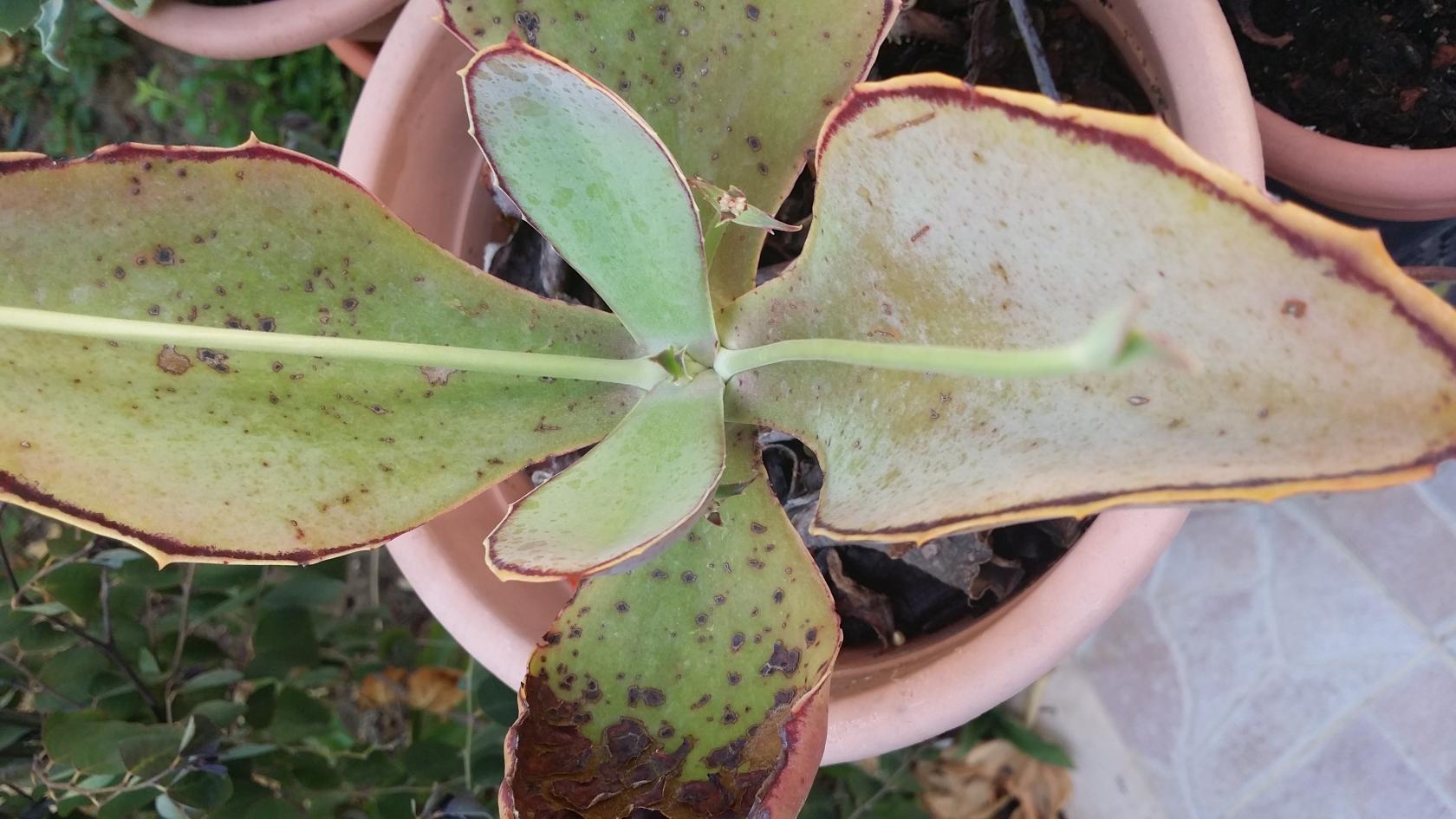
Also, K. rubella sensu Descoings (2003) got recently an interesting color on its leaves:
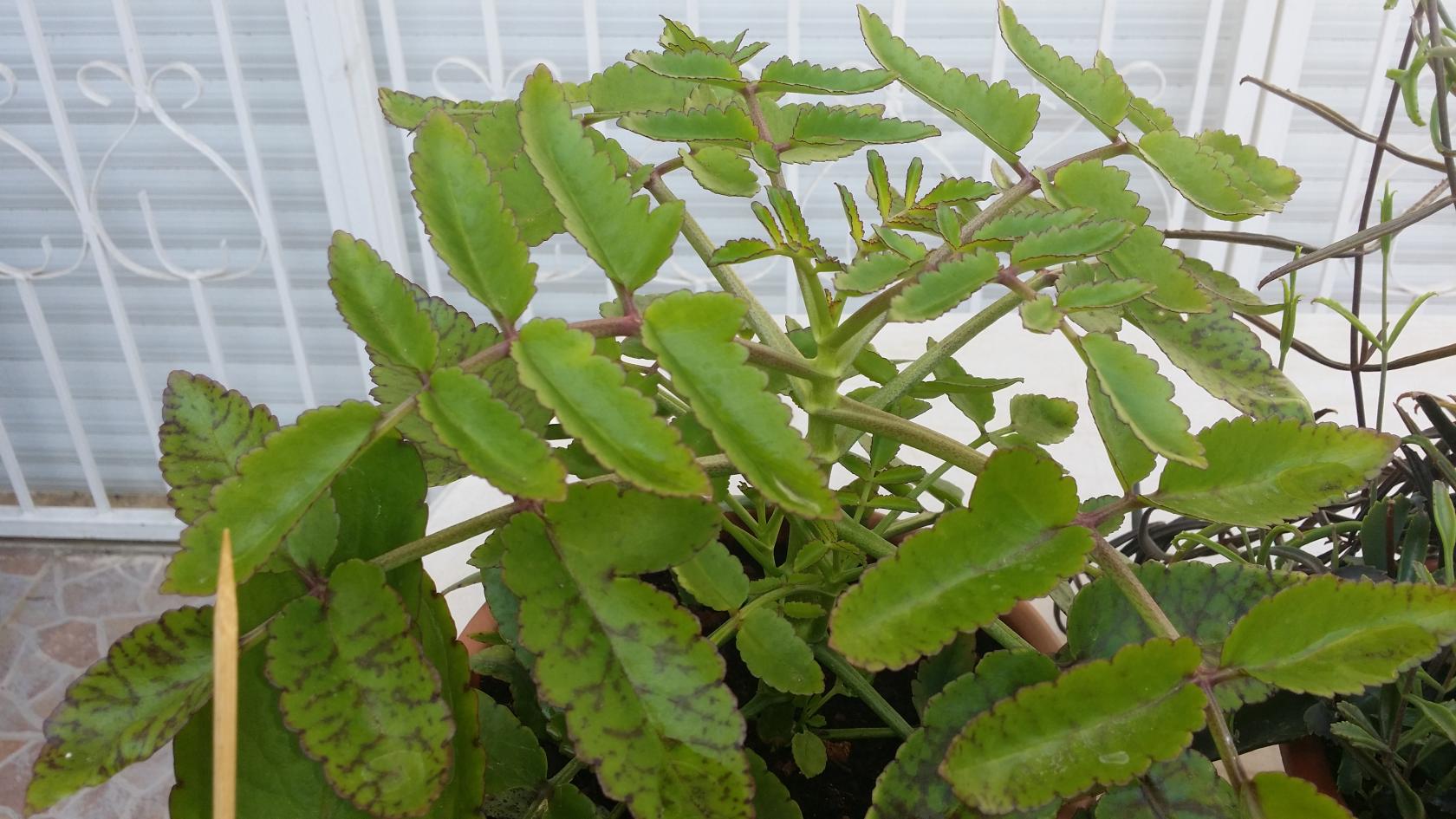
#47 Re: News » Sol lucet omnibus. » 2014-09-18 16:09:50
Yes, when I ordered the plants I specifically asked for inaurata because I assumed he has it (the same for maromokotrensis and peltigera, which he gave me). When I saw this plant in the greenhouse I immediately thought about inaurata, but Richuad insisted that this is not the plant he gave to Descoings... Still, it could be a different clone so I just can't wait to see the flowers ![]()
#48 Re: News » Sol lucet omnibus. » 2014-09-18 14:37:34
Thanks Laurent and Tom!
My plant is obviously too young and only now it's starting to produce aerial roots, however there where some young offsets from the roots on Richaud's plants in the greenhouse. My visit to his greenhouses was unfortunately cut short so I remember seeing only few plants in detail (including this one), nevertheless I bought many species which were already packed when I arrived.
Do you think this is inaurata? The leaves and stem fit (except the color), but the source appears to be different...
#49 Re: News » Sol lucet omnibus. » 2014-09-18 09:33:30
A short introduction, I'm Ronen Shtein, a crassulaceae (mainly) collector from Israel most interested in Kalanchoe. I don't speak French but I have some info on the topic.
Tom, your inaurata looks like a plant I bought from Richaud 1.5 months ago (here it is purplish, but the plant looked brown-bronze when I visited his greenhouse. Richaud said it looks like that during the summer).
Here is my plant, near a K. miniata: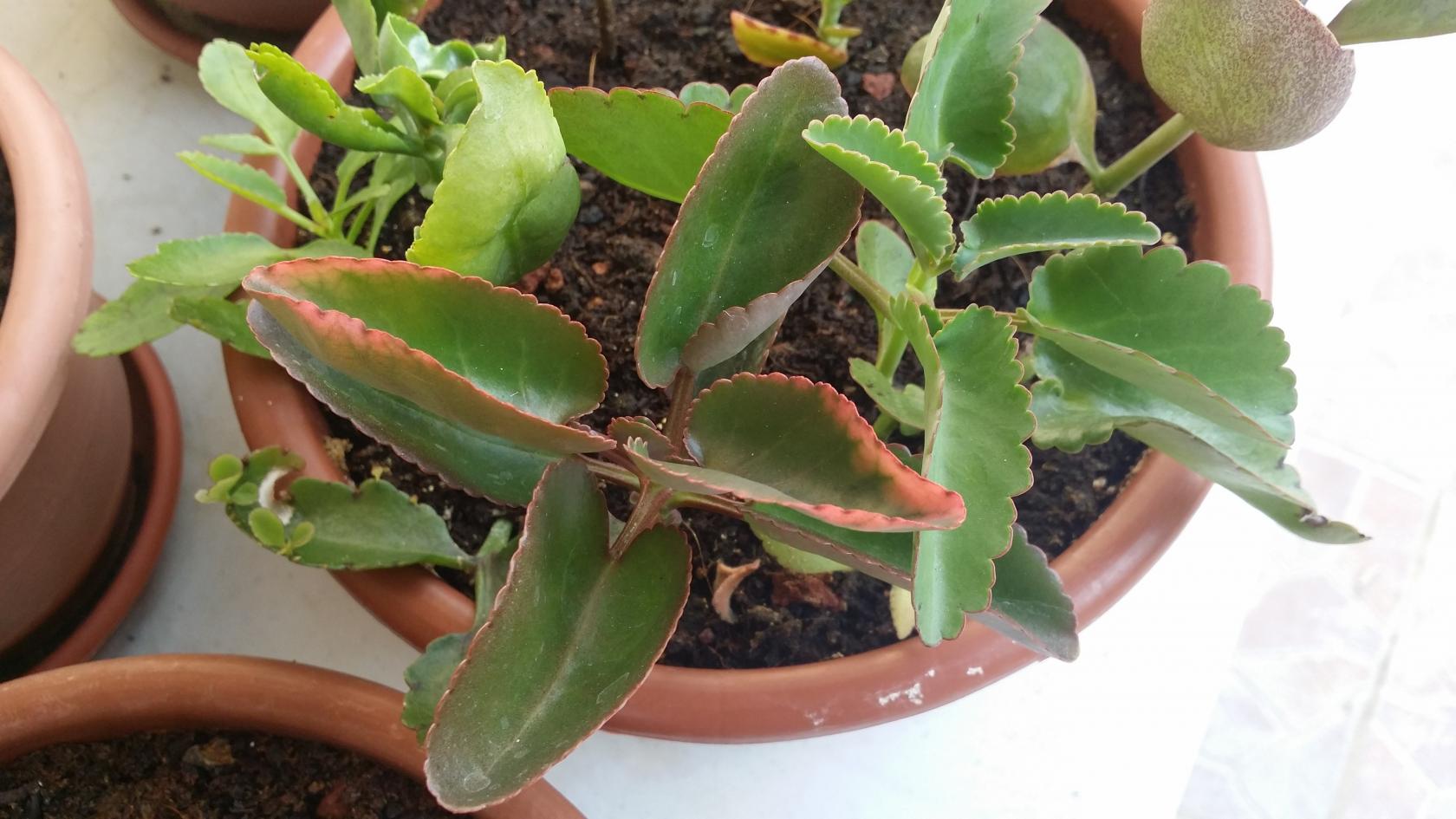
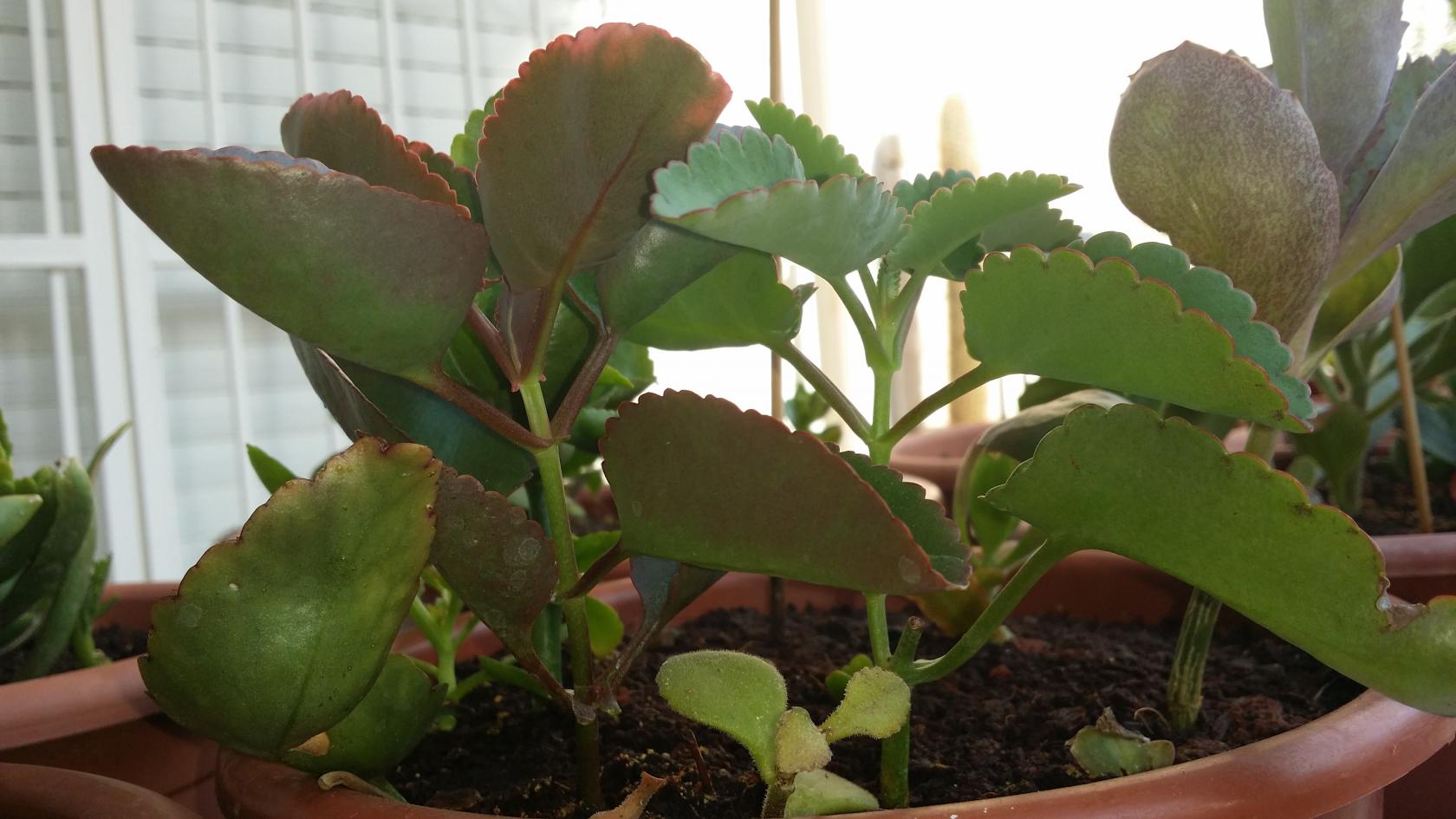
More info on its source:
http://www.cactuspro.com/forum/read.php?1,511971,511971
I asked Richaud if he has K. inaurata, but he said he has lost it, so I don't know if this plant is inaurata, or a variation of miniata. I think, the only way to know is to wait for flowers - miniata pretty much covers all other traits of inaurata due to its variability...